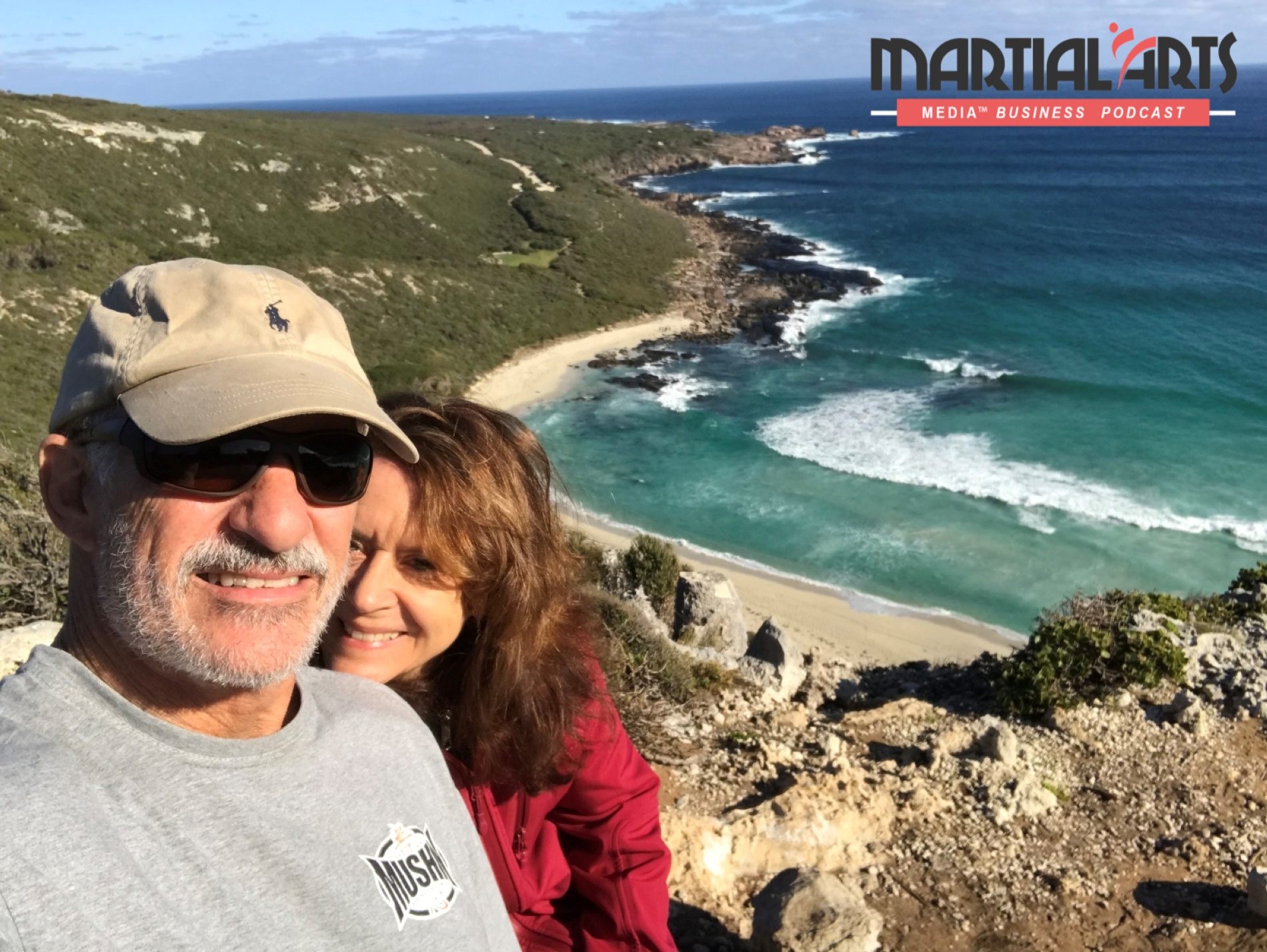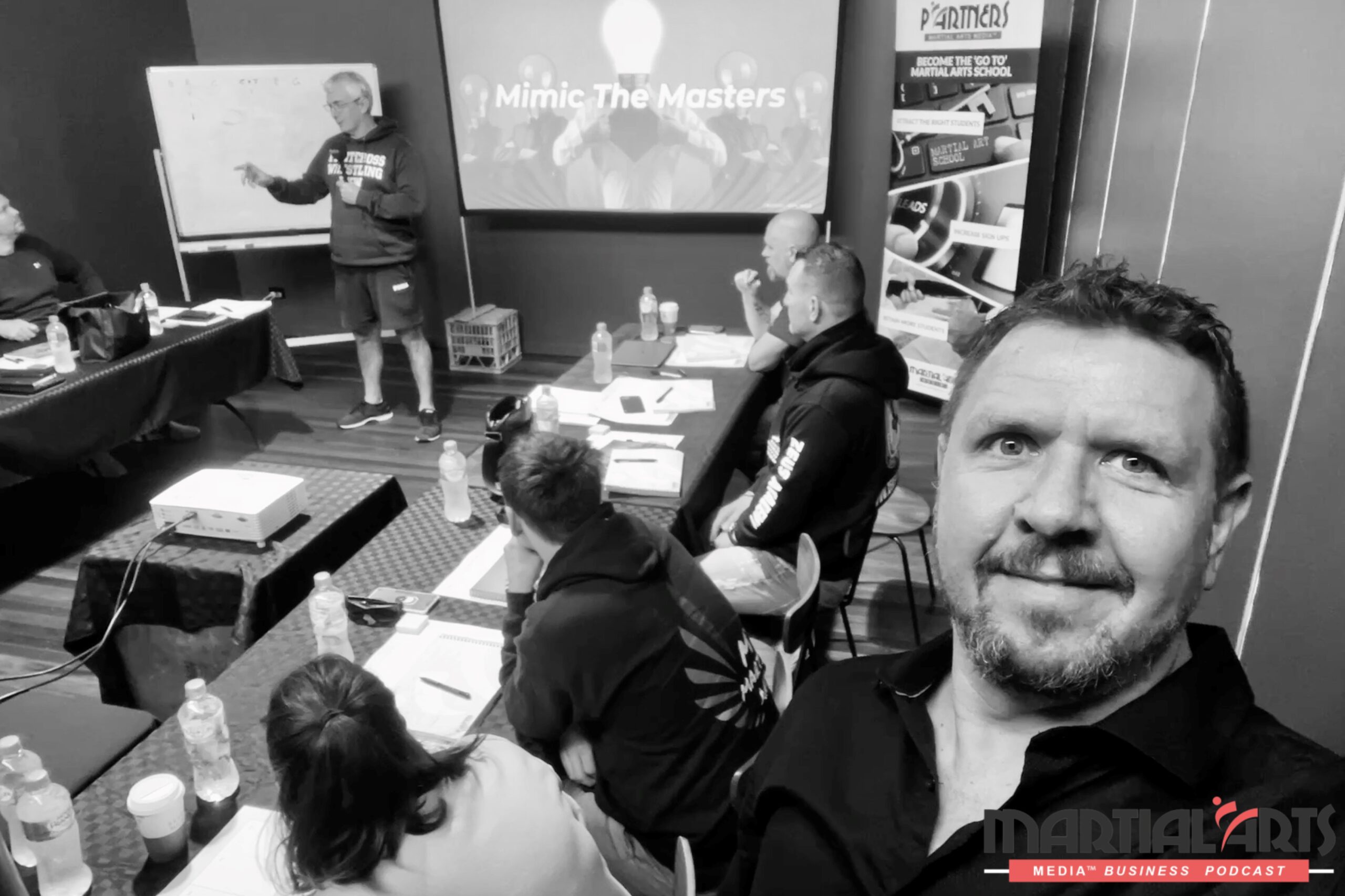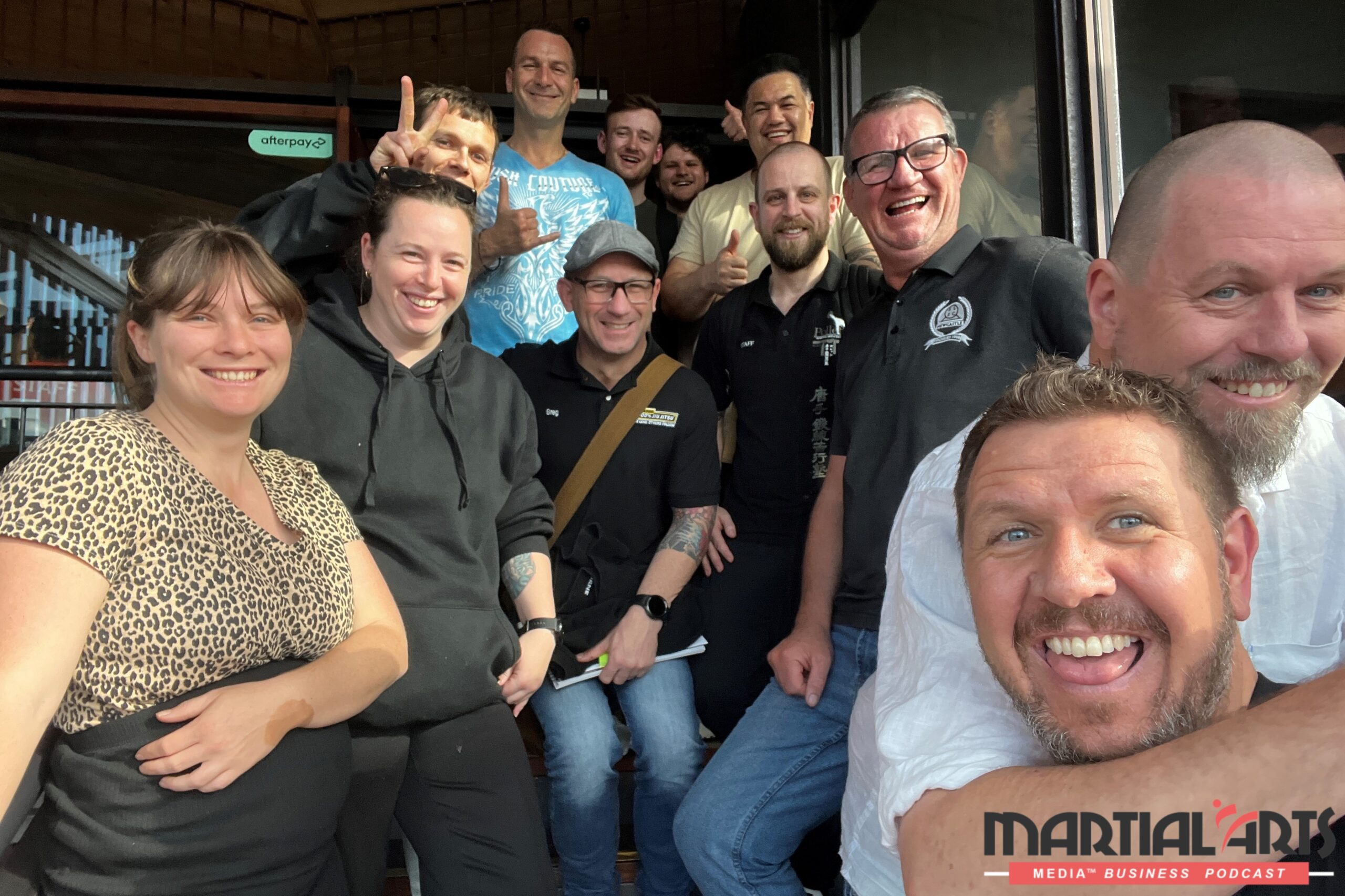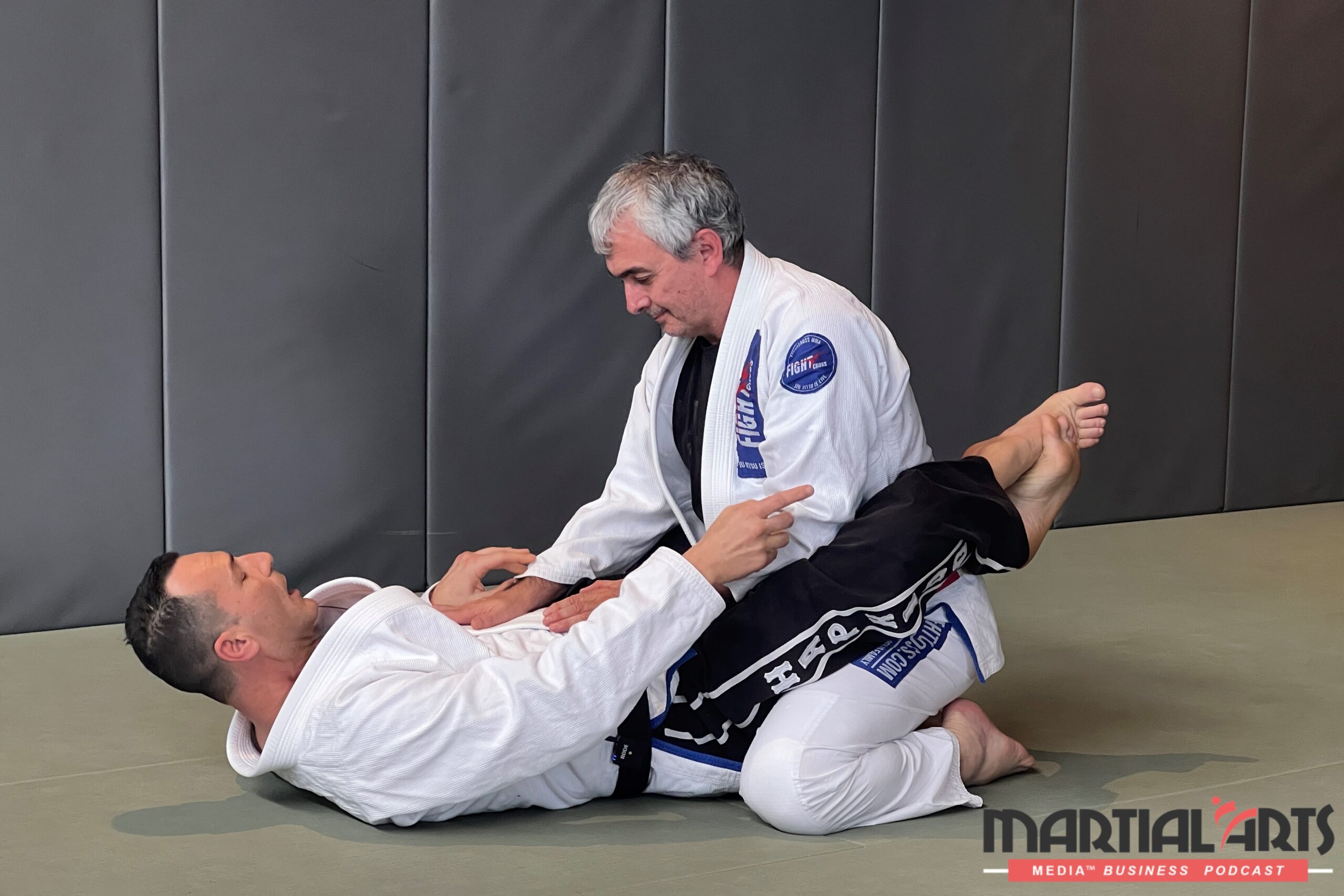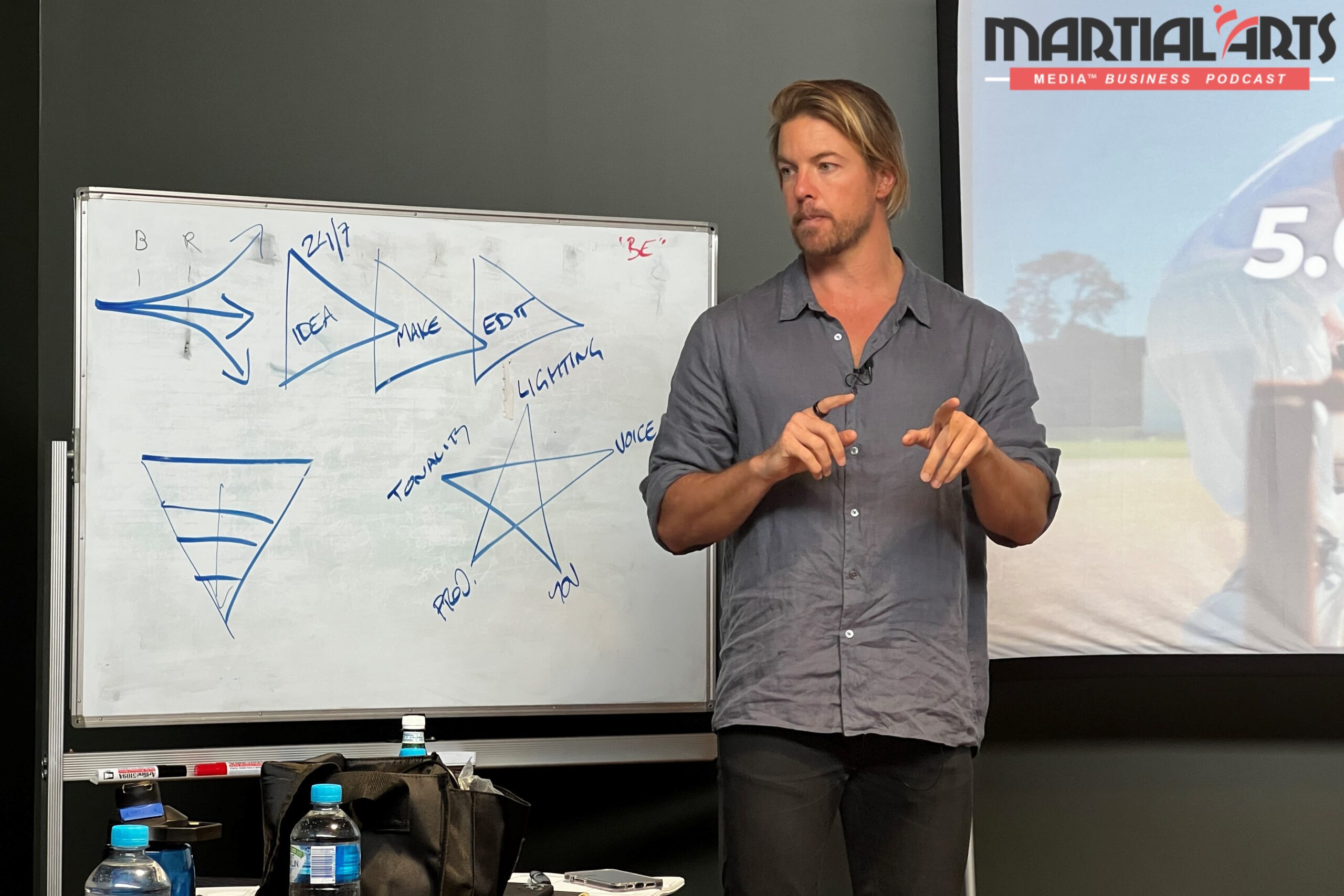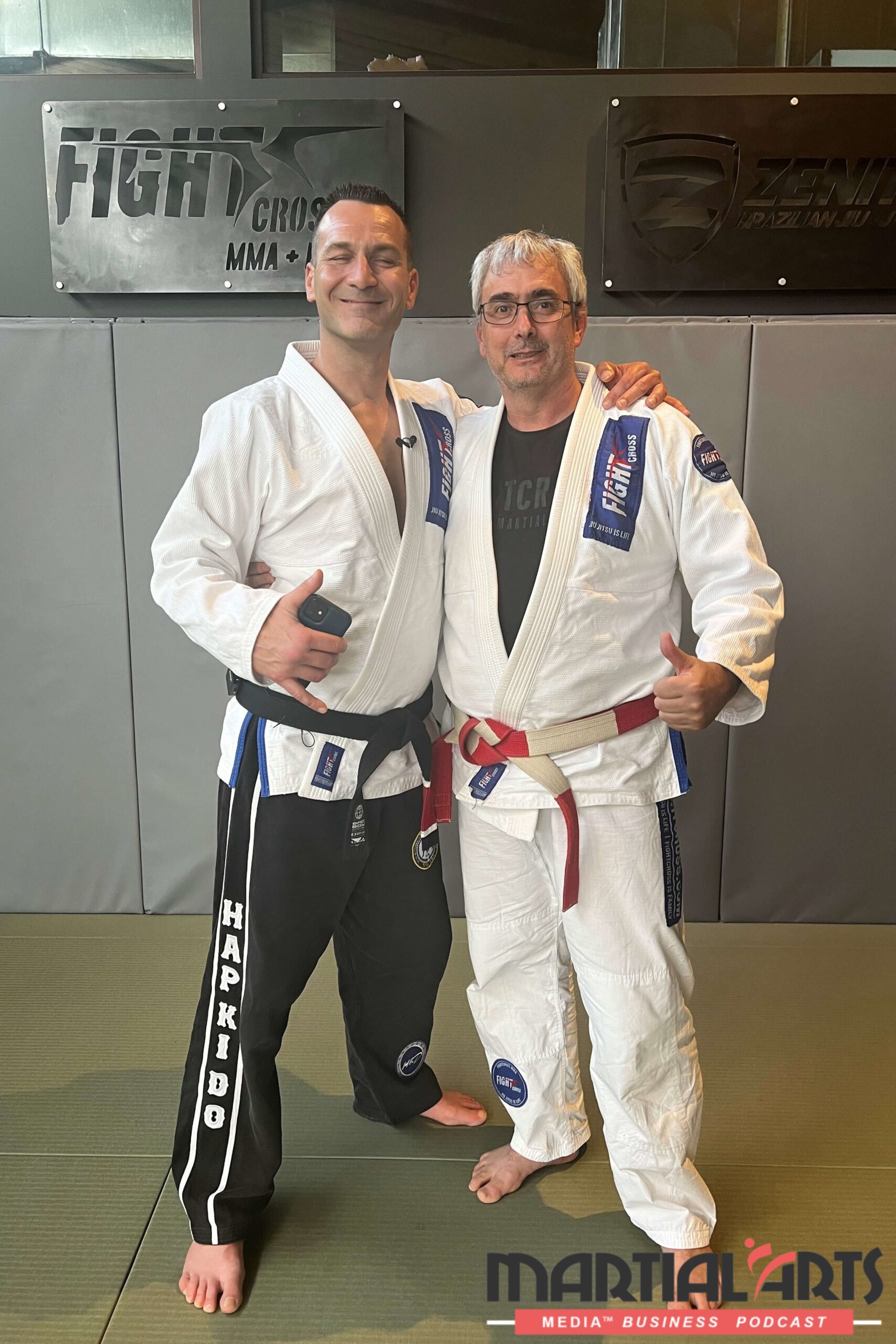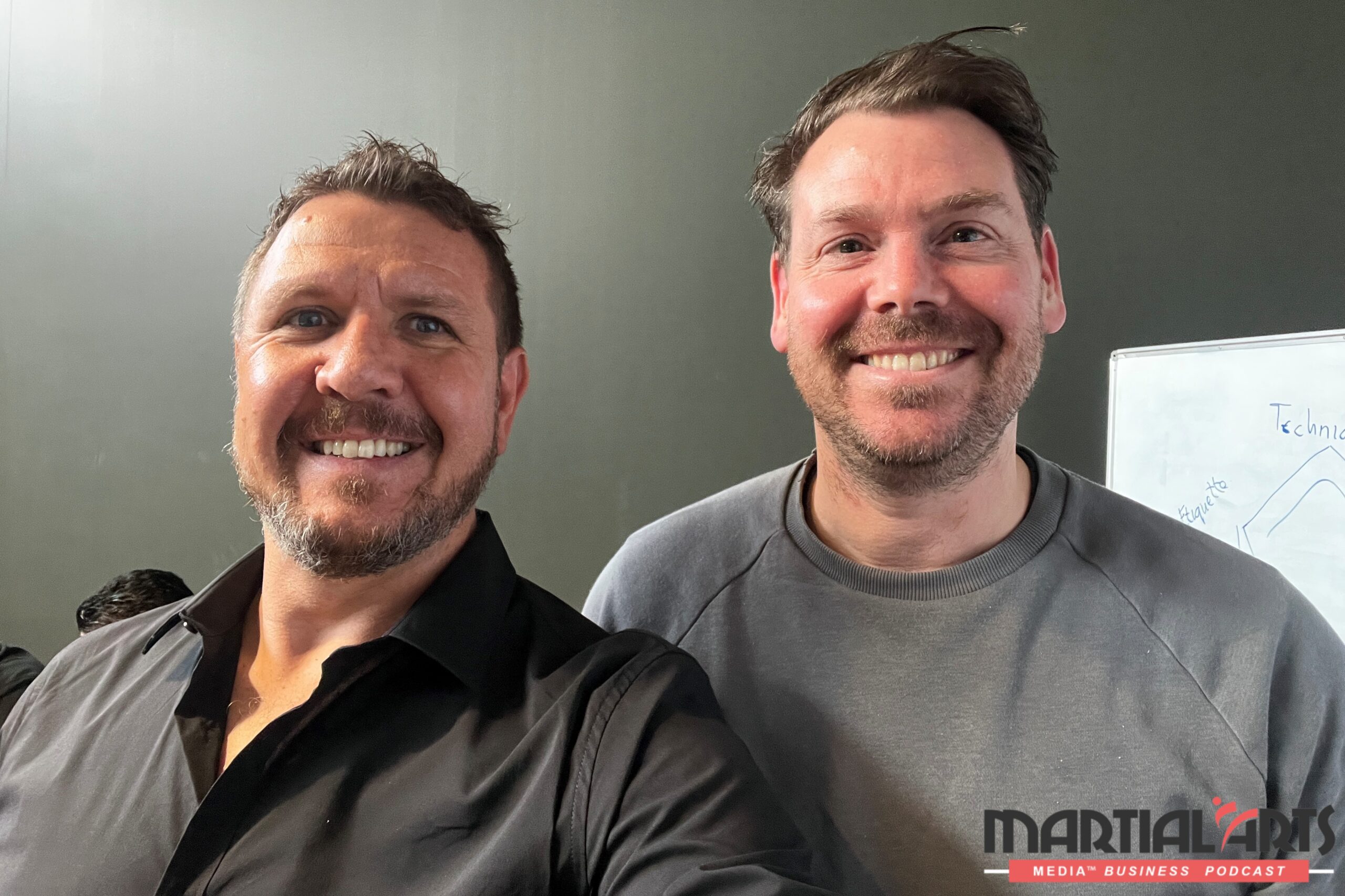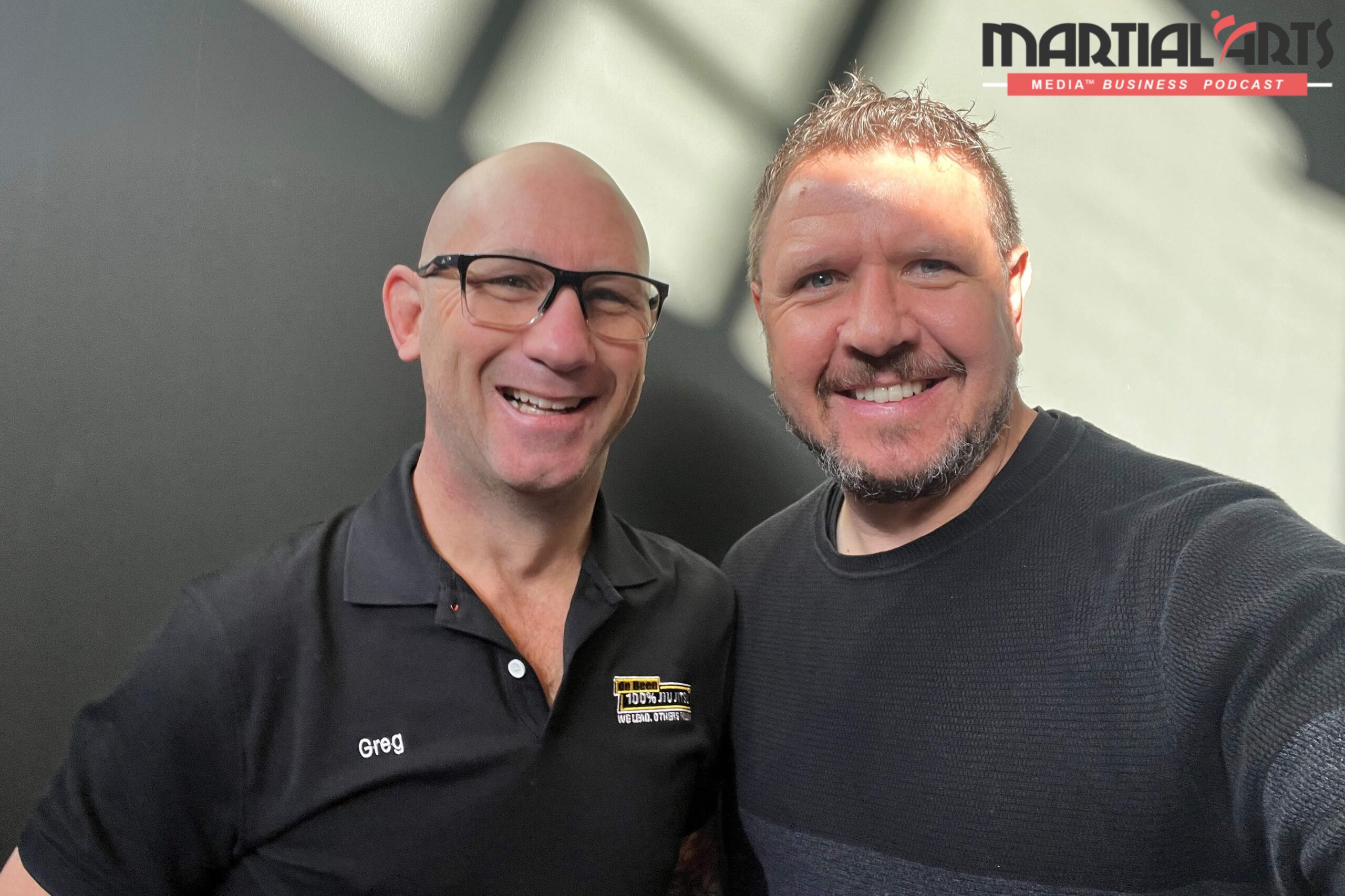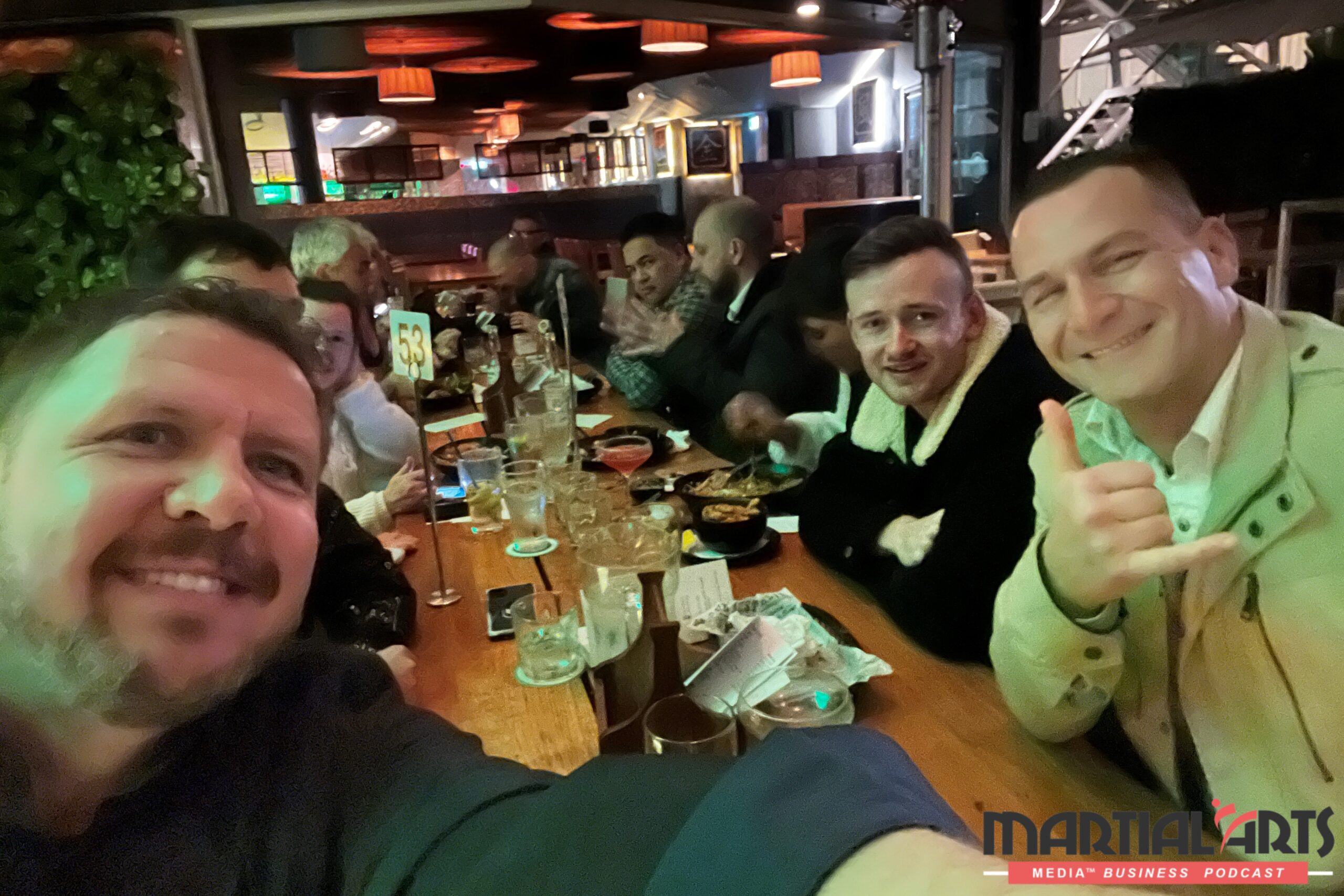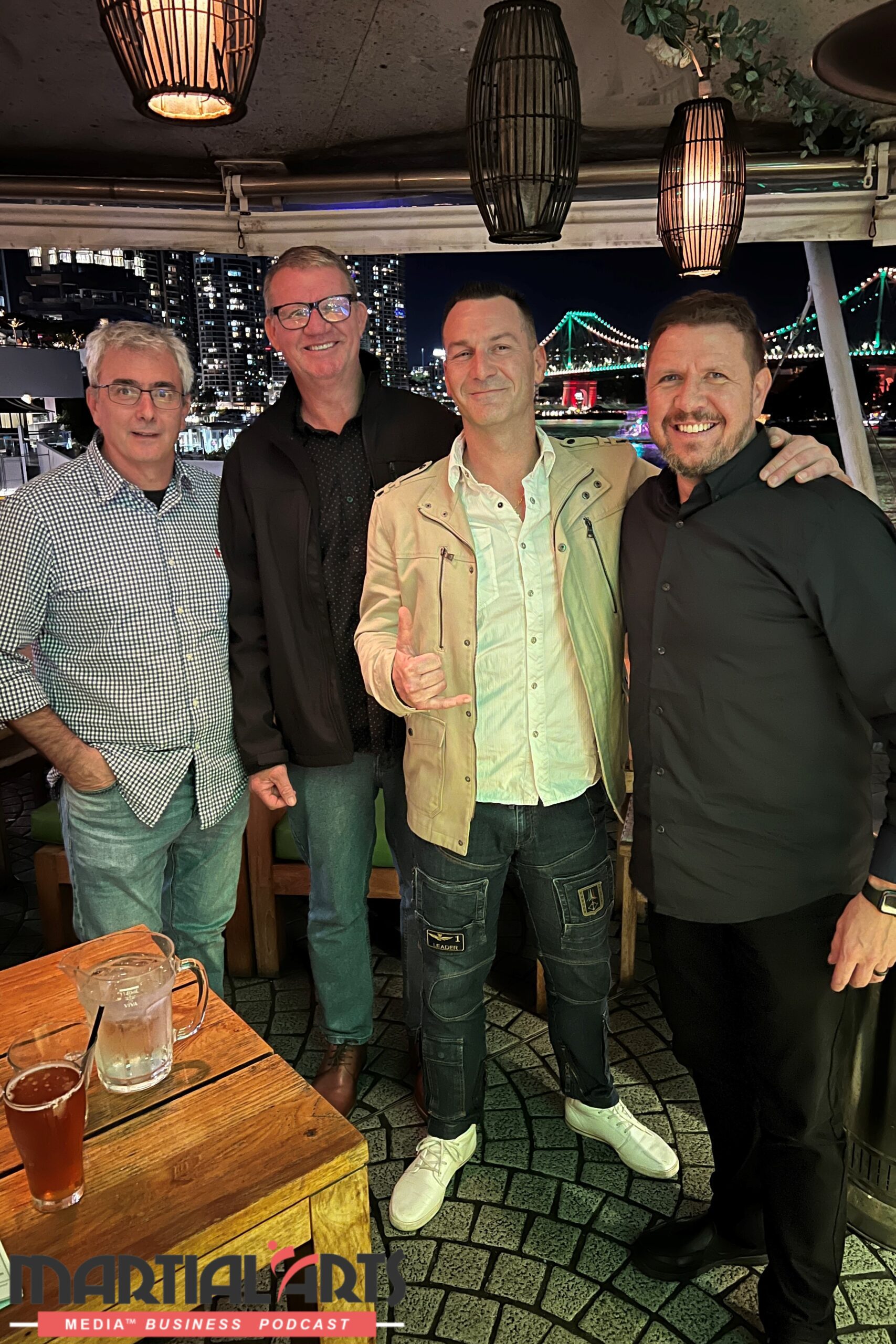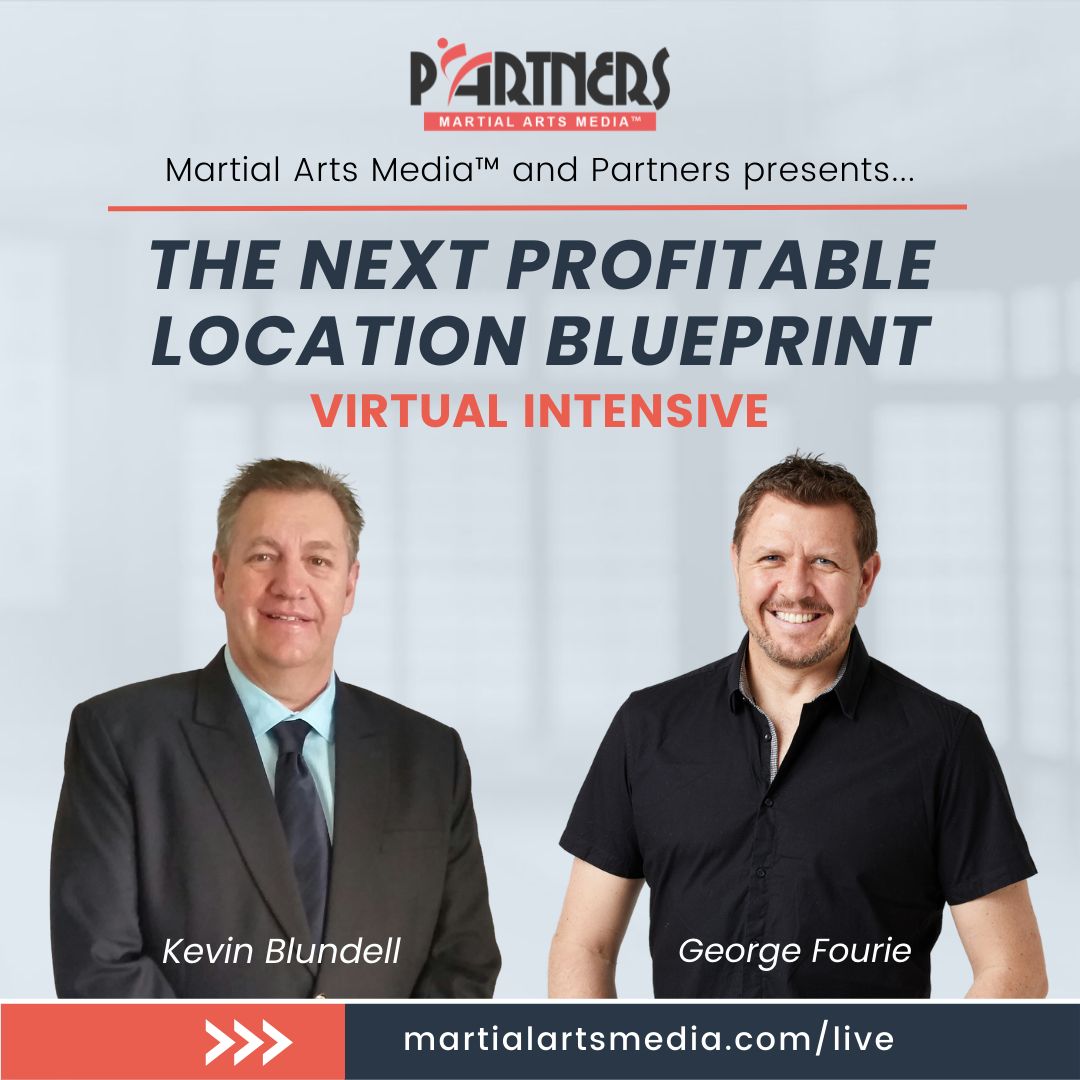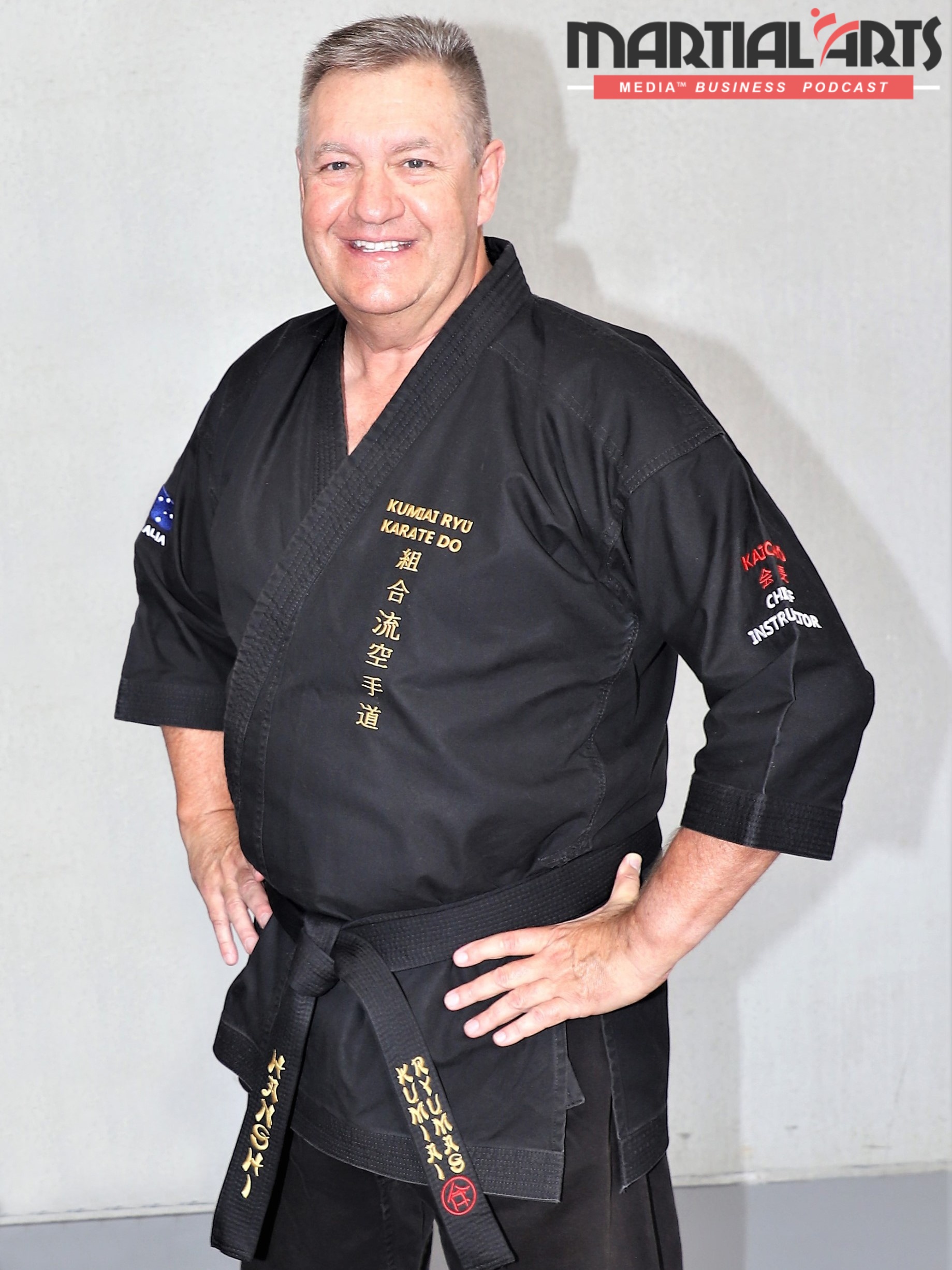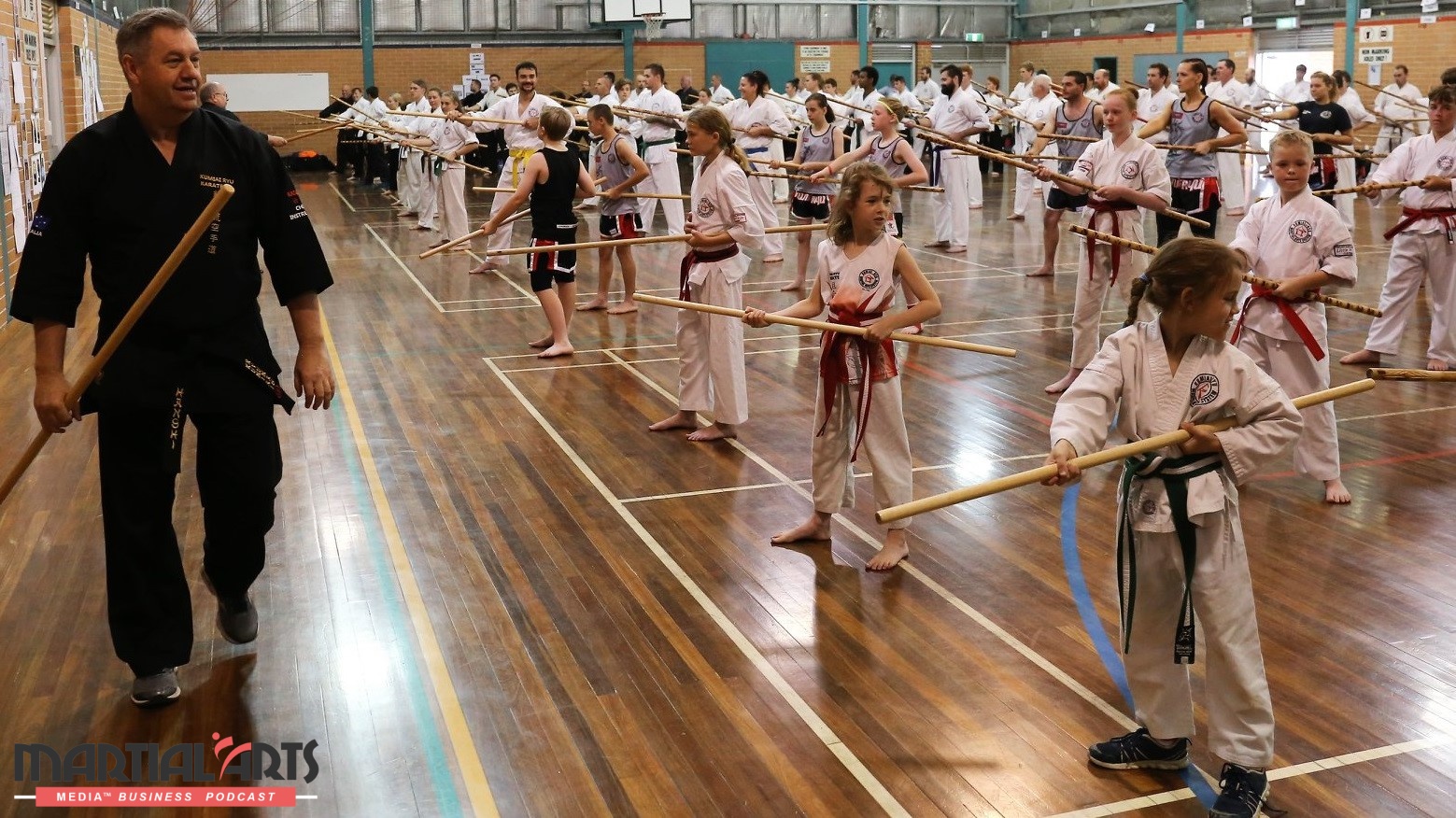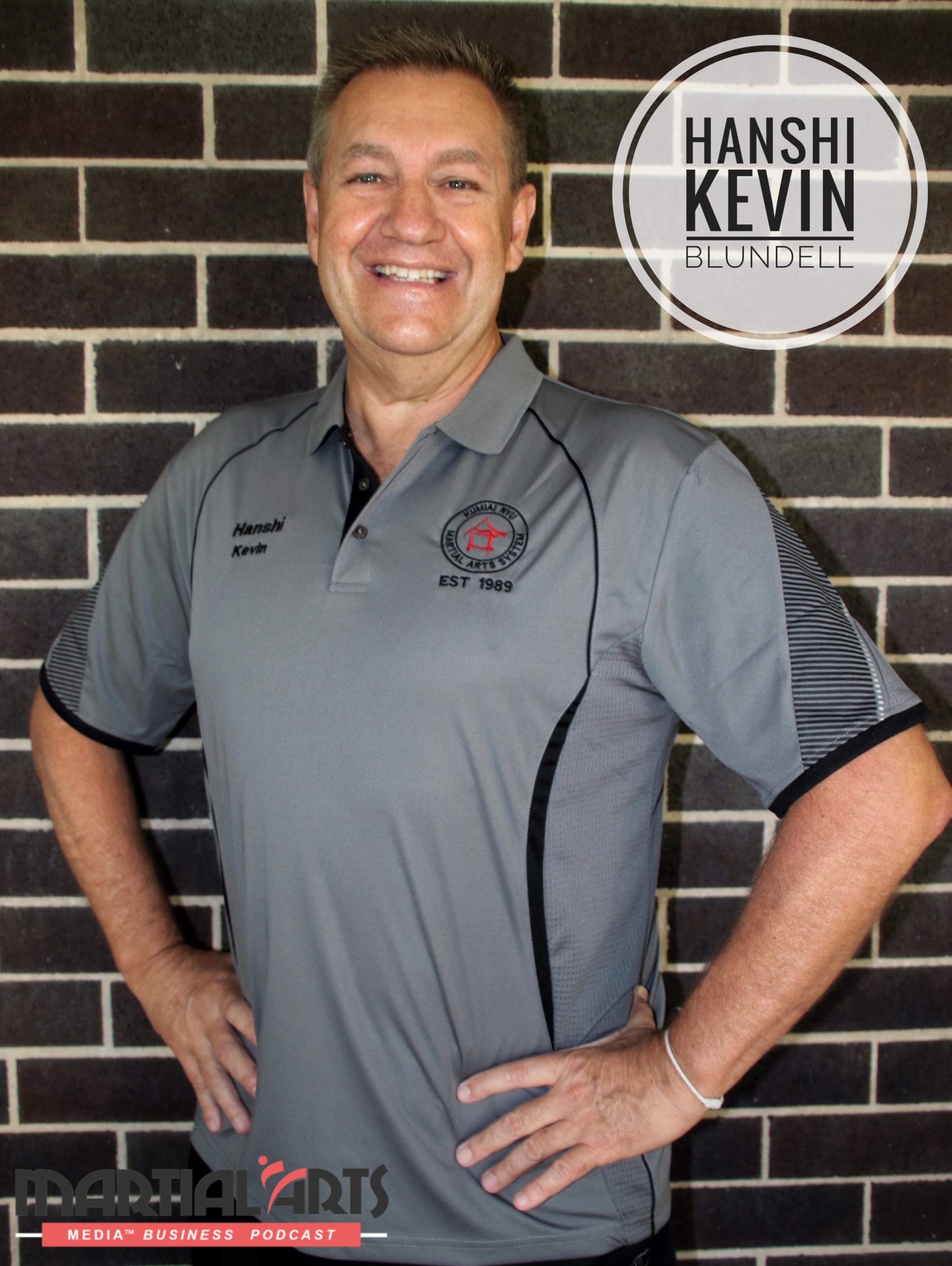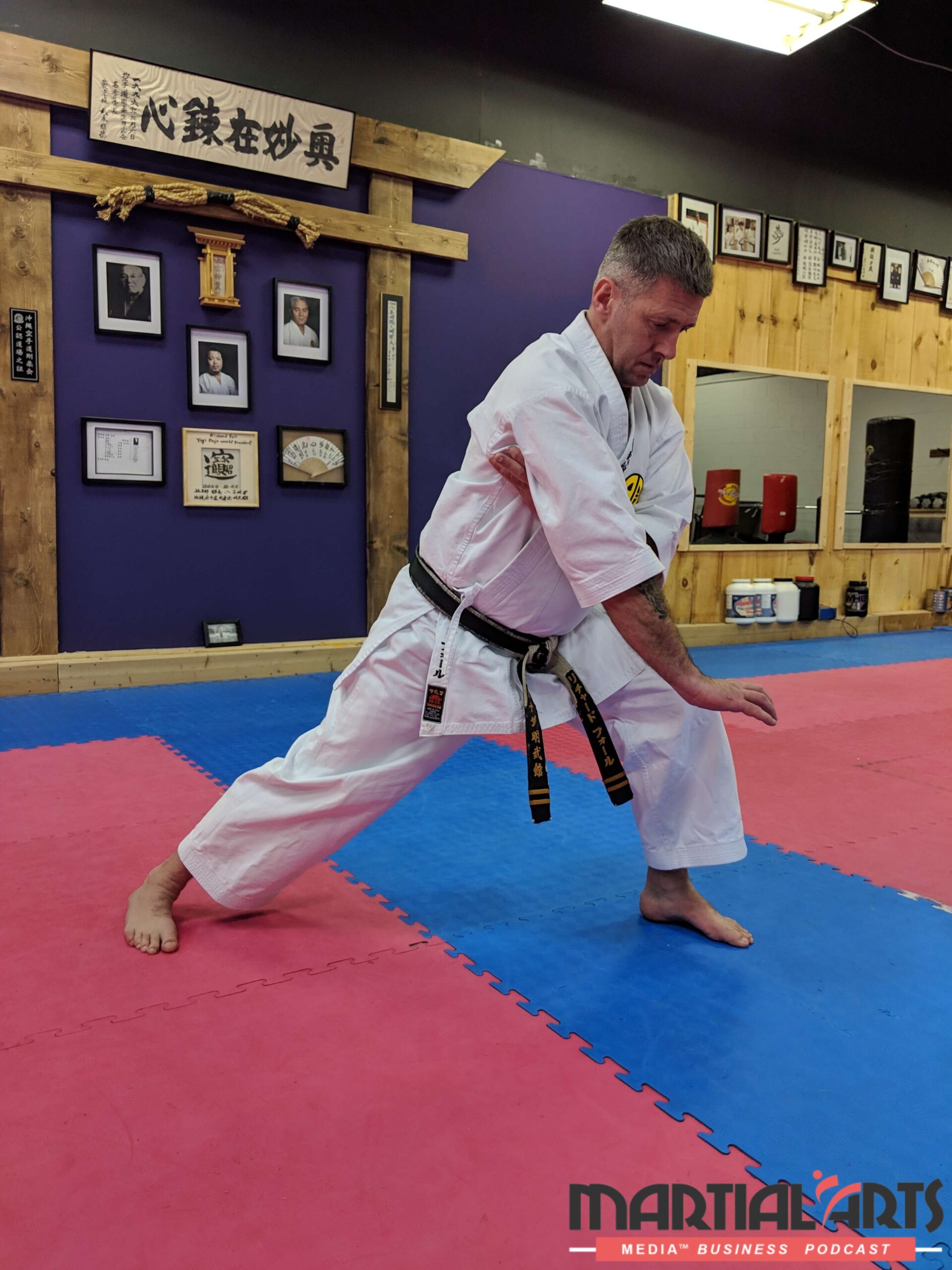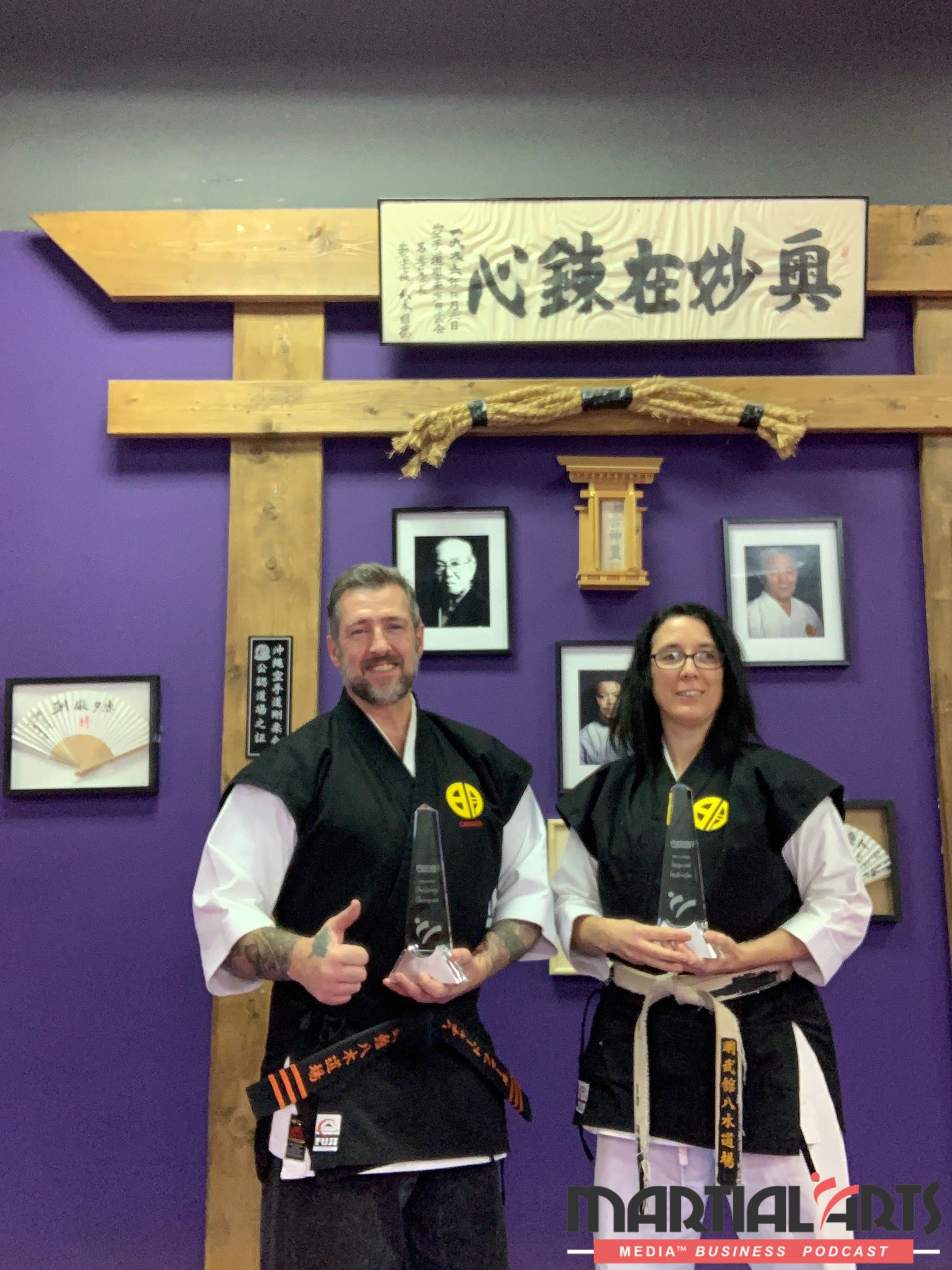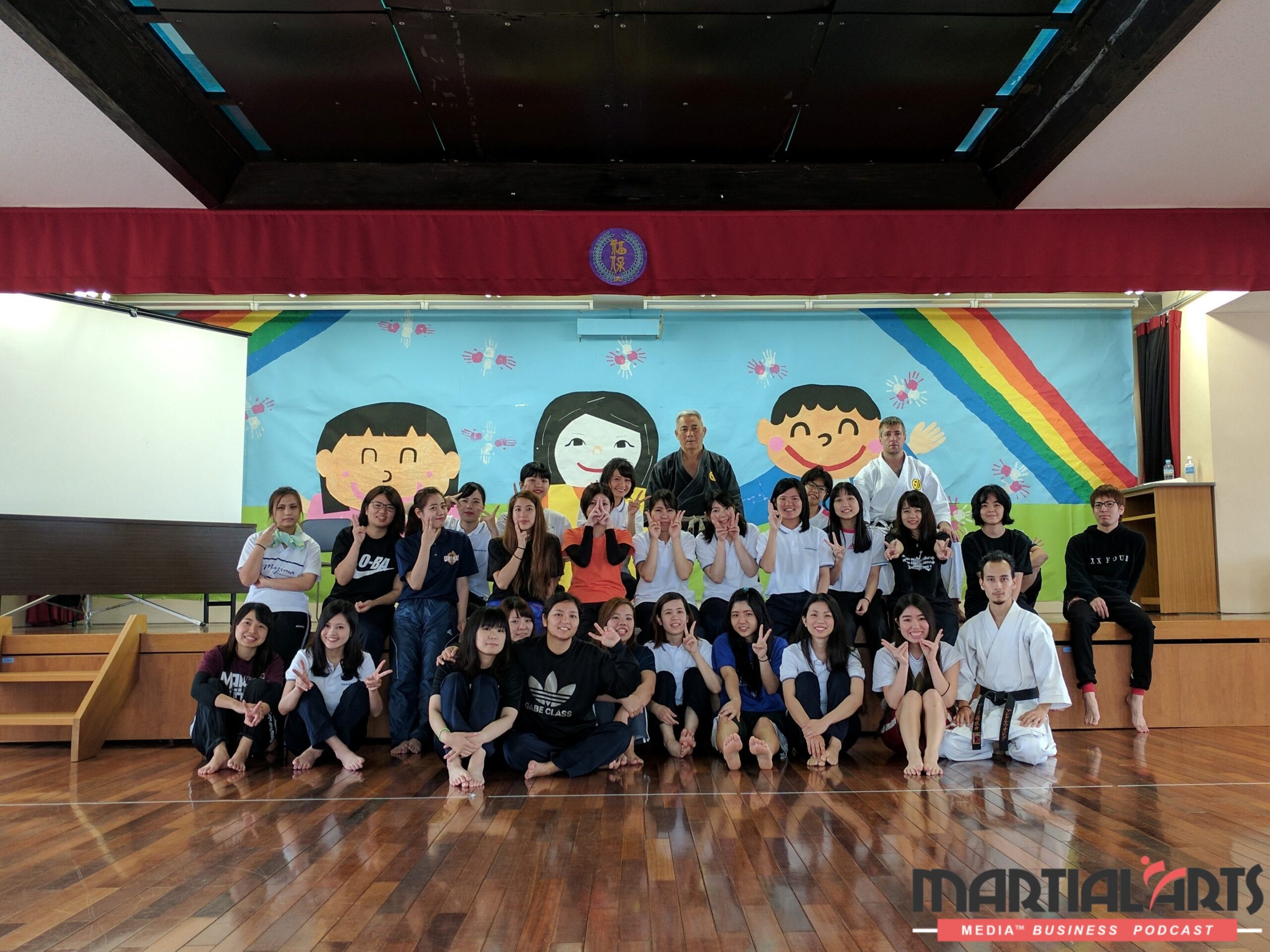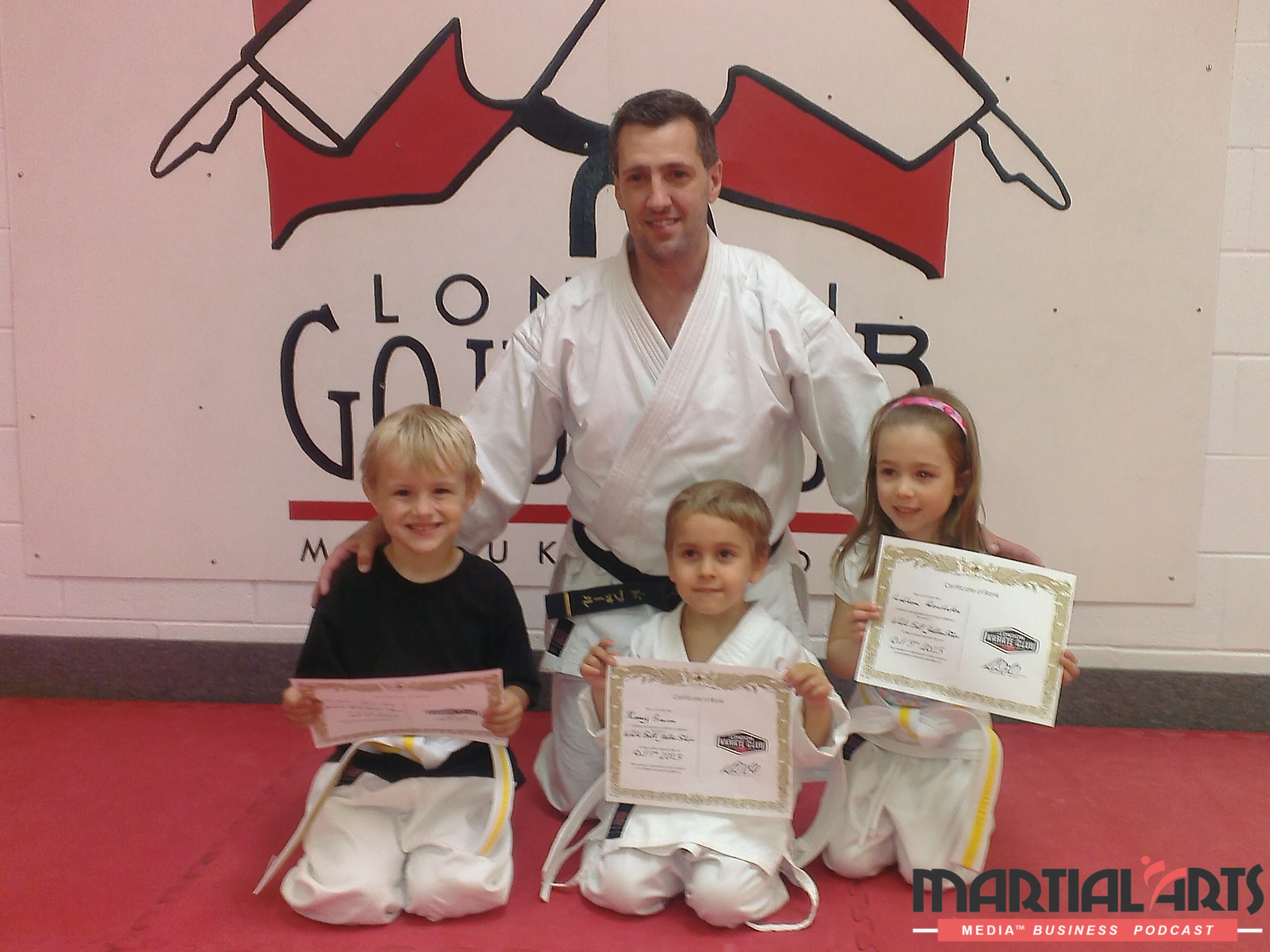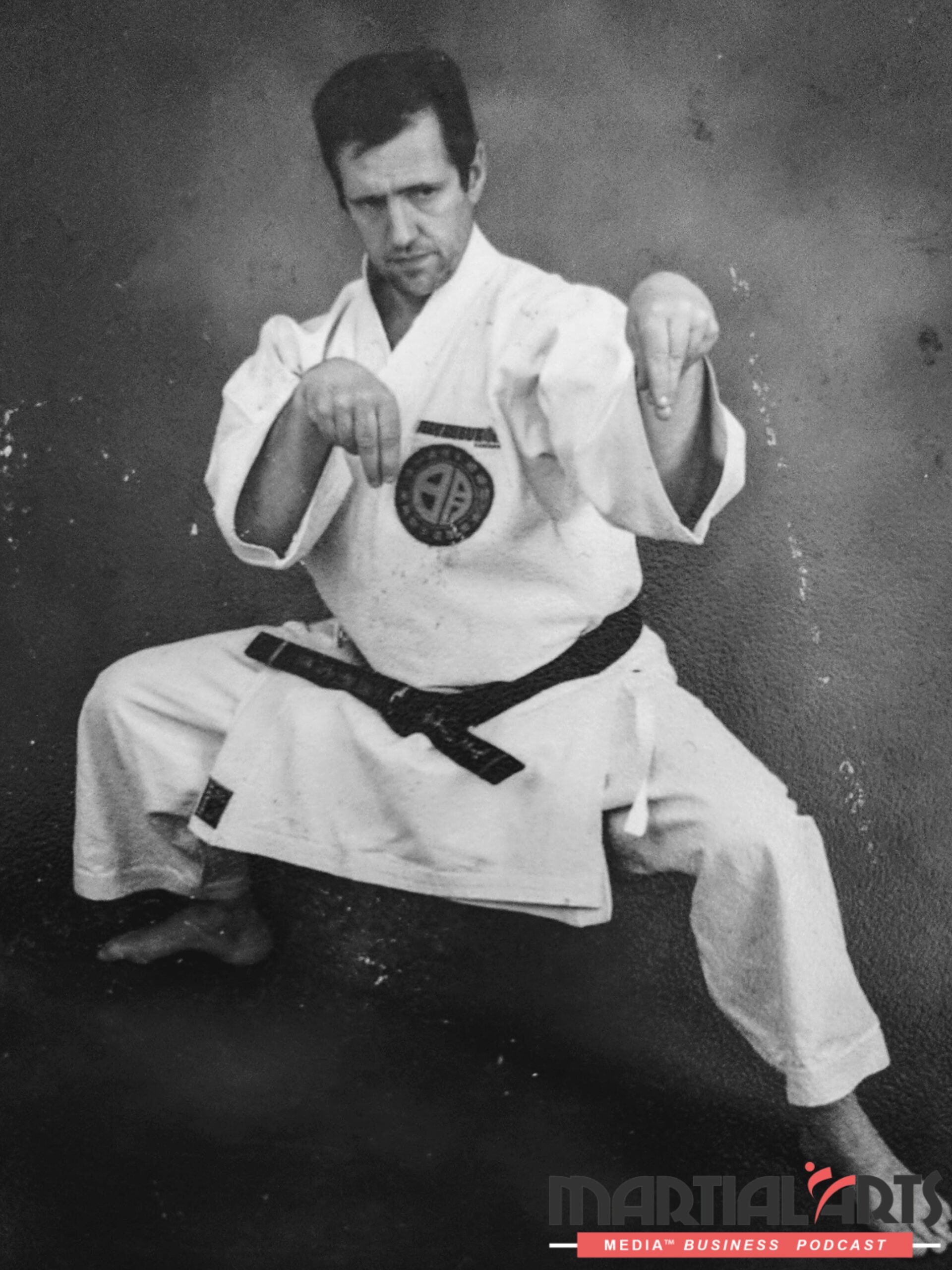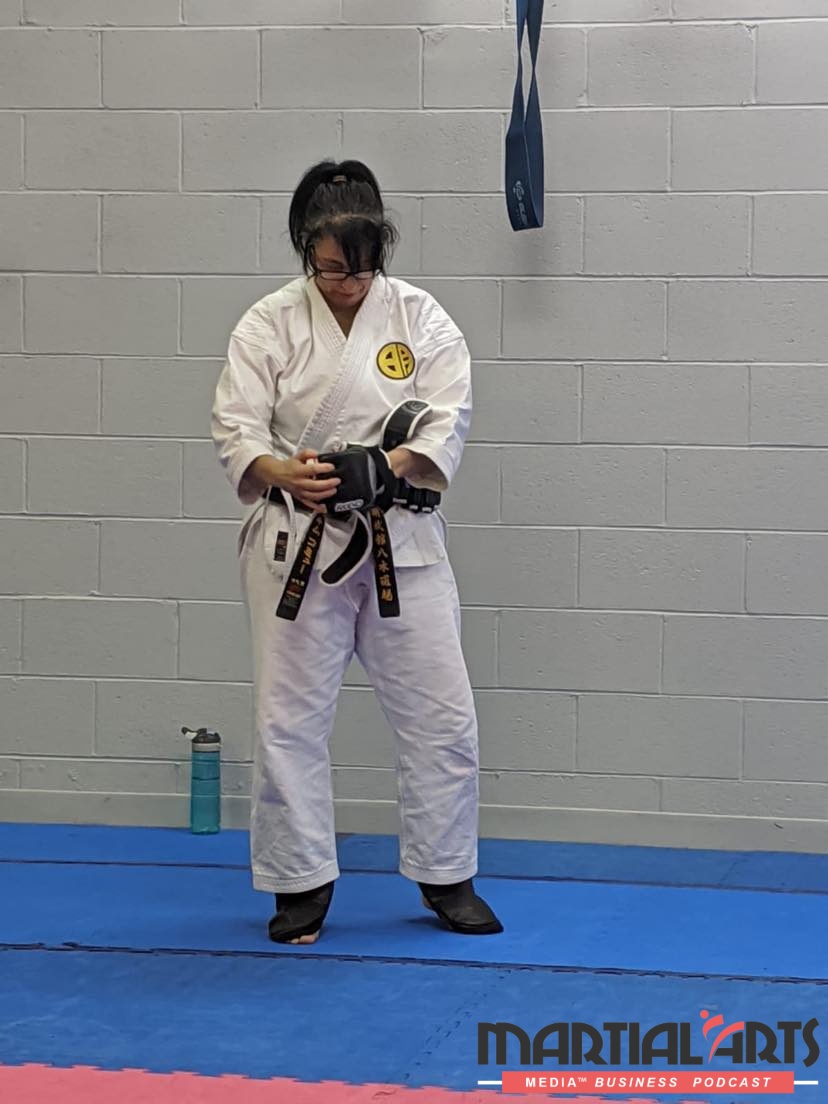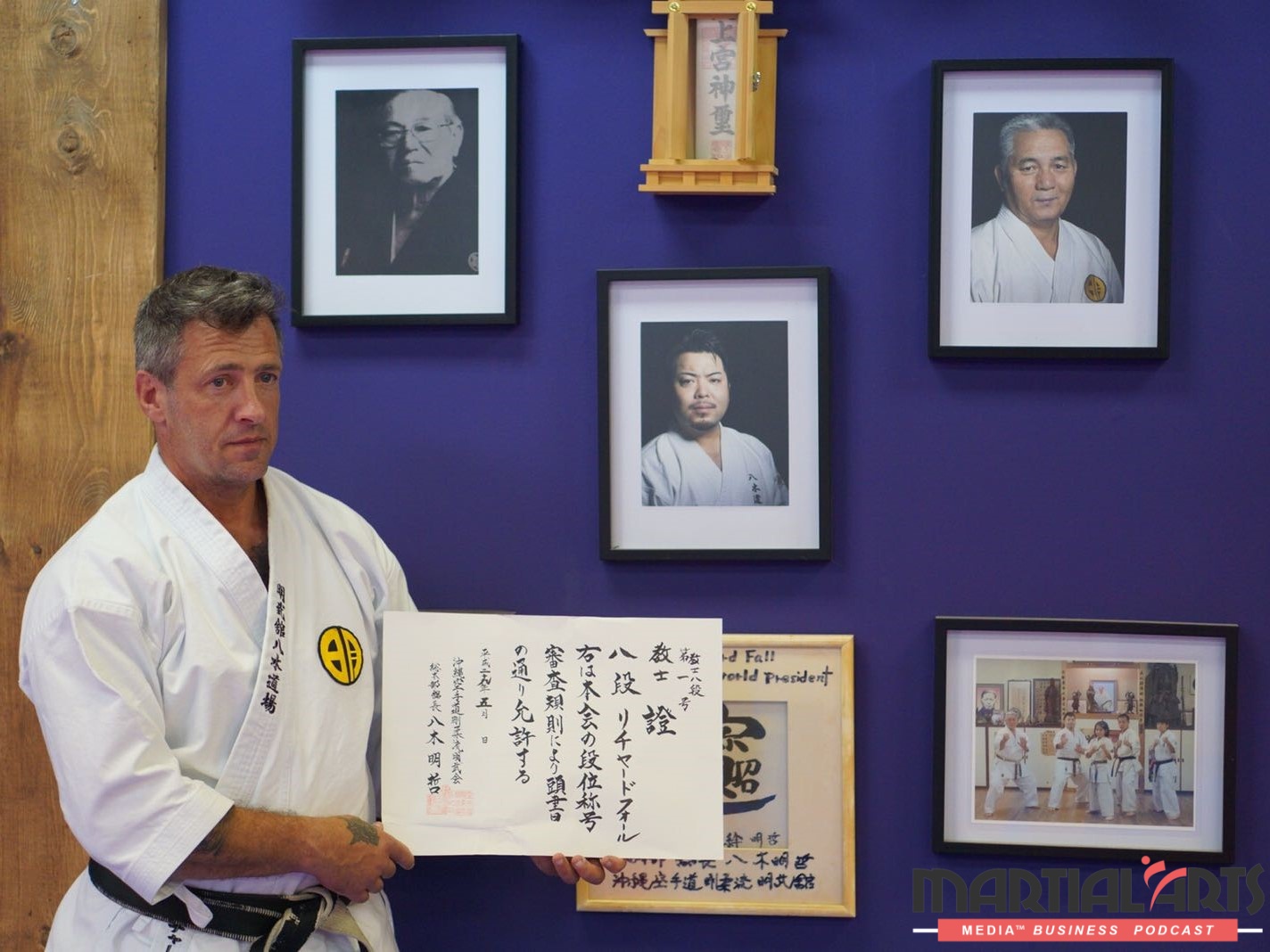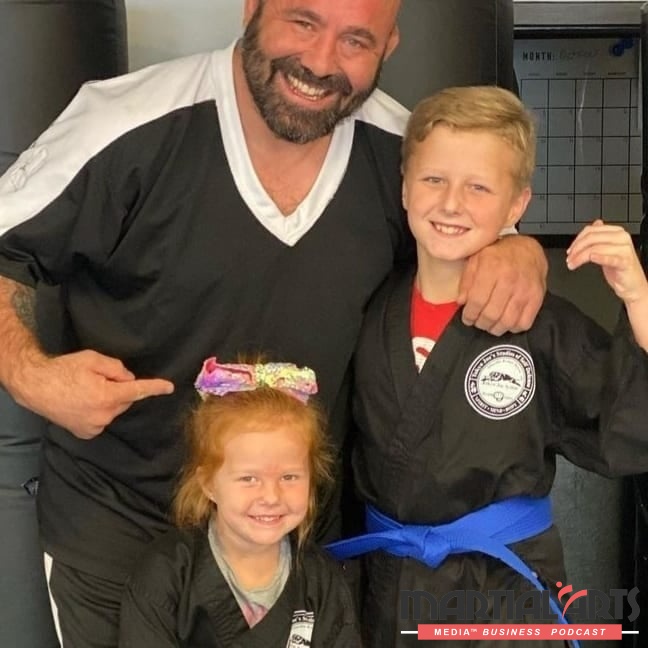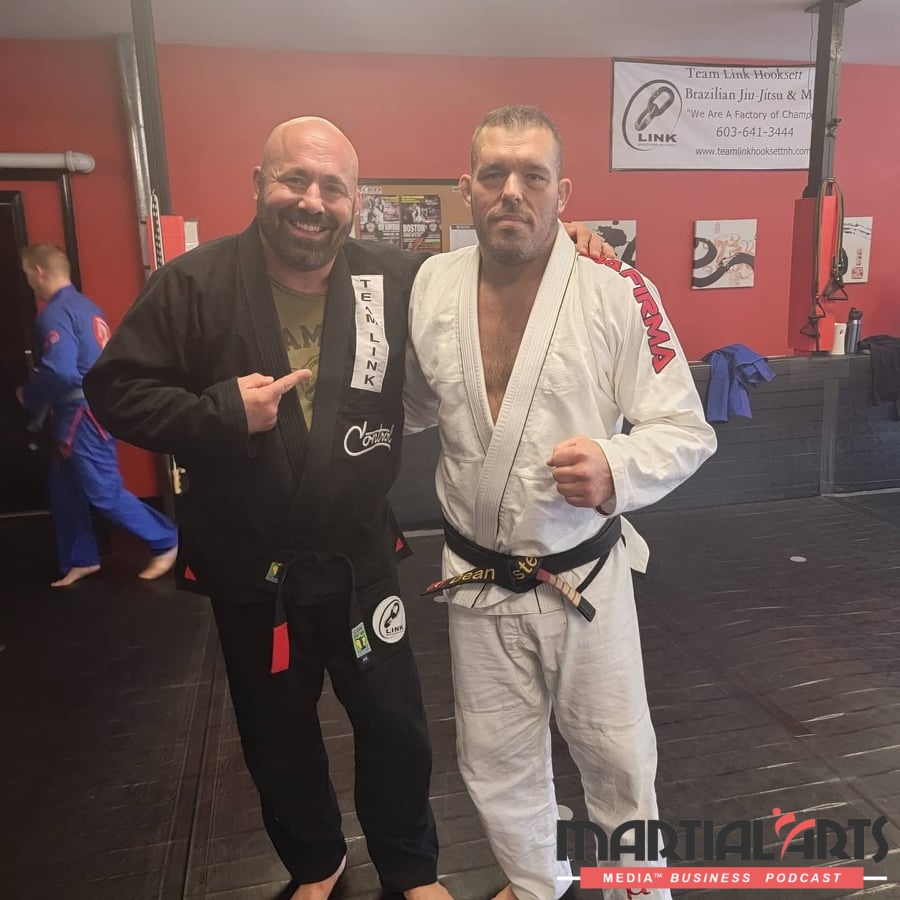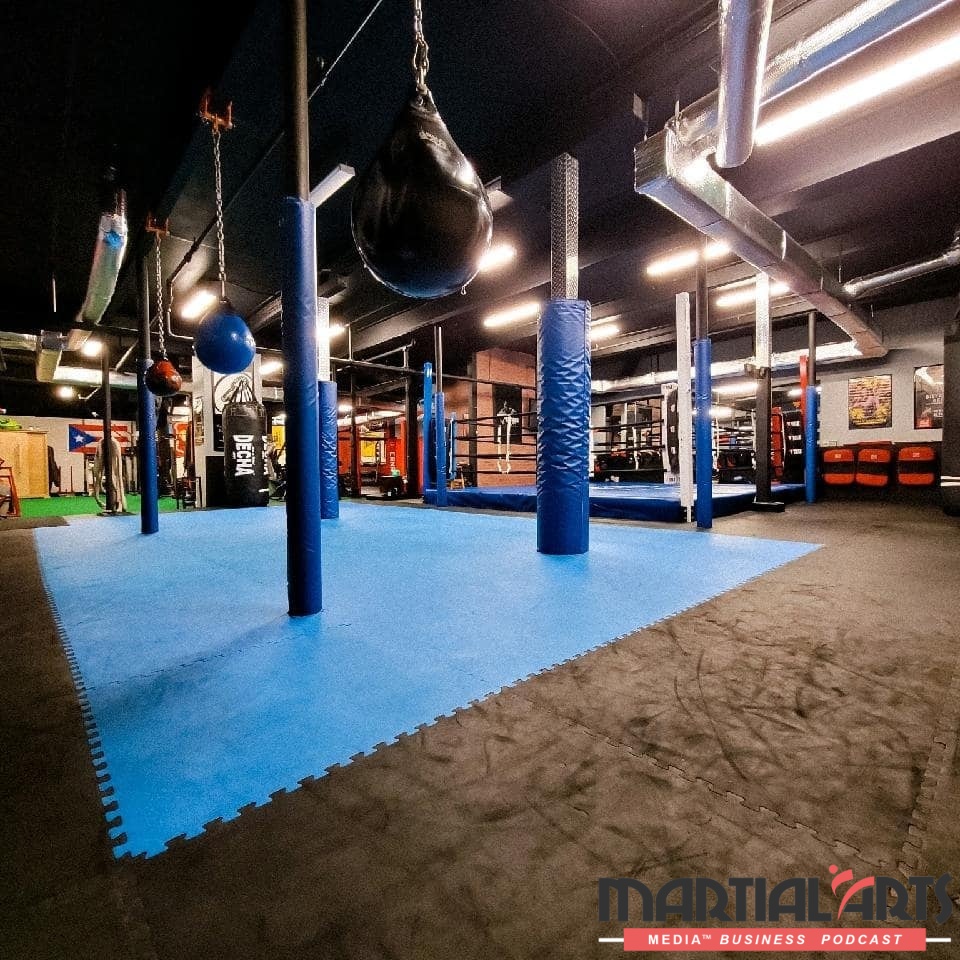Sean Allen's thriving martial arts school supports his lifestyle of training, learning, and surfing. Discover how his passion for teaching drives demand and impacts his community.
IN THIS EPISODE:
- Sean Allen: The Antichrist of martial arts marketing?
- The 1 sentence that trumps all other martial arts marketing methods
- How the Dunbar number boosts relationship between student and instructor
- Capturing 10% of your martial arts school’s target audience
- Turning class challenges and discomfort into teachable moments
- Getting parents off the phone and focused on their kids' martial arts class
- And more
*Need help growing your martial arts school? Start Here.
TRANSCRIPTION
GEORGE: Hey, it's George Fourie. Welcome to the Martial Arts Media™ Business podcast. In today's episode, we're back with interviews and I'm really, really excited to have a repeat guest with us, Sean Allen from Margaret River Martial Arts.
So Sean and I connected way back on episode number 8. I had a look yesterday when we did the recording, it was just over six years ago that we had our first chat. First up, it was great to chat and tap into a different insight that Sean Allen delivers.
Sean does a bit of a contrast of what we speak about, which is how to do marketing, online marketing, attract the right students, increase signups, and so forth. Sean does no marketing and his school is at capacity with a one-year waiting list. So we might say there's no marketing in there, but there's obviously a lot in there to generate that type of demand.
And I really wanted to chat with Sean about having this lifestyle martial arts business, his choice of where he relocated to which is just in Australia. Margaret River is like the surf Mecca of Australia of the world, you'll hear that from the Margaret River Pro. And Sean decided to relocate there and really build this lifestyle martial arts business that serves his lifestyle.
But we took a strong turn in the episode and spoke about teachable moments in martial arts instruction. There's some real, real value in there for you as a martial arts school owner and instructor. So buckle up, this is a great episode.
Jump in all the show notes are on martialartsmedia.com/135. So you can go there and download the transcript of this episode. And if you've got some value out of this, please share it with someone that you feel… Share it with an instructor that would get some great value from this. All right, that's it for me. Let's jump in.
Hey Sean, welcome back!
SEAN: Thank you very much, George.
GEORGE: The last time we spoke on podcast 8, I was just looking back a few minutes ago and exactly a few days past six years ago that we actually spoke, episode 8.
SEAN: Lot's have changed.
GEORGE: All right, and so let's jump into that. I wanted to have you back just to have a chat of those changes and a few things that we do differently now. So I'm going to kick it off with the question that I like to ask. What's been your best marketing strategy since we've spoken or just in general that generates the most students for you?
SEAN: I was thinking about this. I knew this question was going to come up and there was a fair amount of trepidation on my behalf because I know you are a marketing guru. What you do is, you get relatively new school owners to get more students. Whereas me, I'm like the antichrist of marketing.
GEORGE: What? 🙂
SEAN: I'm just not interested in making the phone ring. We've got a year's waiting list for our martial arts school. Now, my caveat is I only have 250 students, but I've spoken to people and they go, oh my God, I'd love 250 students.
I make good money, my overheads are low. But I find that my best marketing tool is word of mouth and everybody says, but you better call them 'cause they've got a waiting list. Now, it's true. We literally are saying to people now, maybe, maybe second term 2023.
And as of the time of our recording, it's the end of term three 2022. So it's nearly a year, especially for some classes. I mean, most martial arts instructors, they're going to get a huge number of inquiries for six-year-old boys or eight-year-old boys. This boy is sending me nuts, he needs some discipline and we know our limits. We know what we can do well and we don't overload ourselves so that we forget their names.
GEORGE: All right. So I'd argue that that's like the forefront of marketing, but we'll go with the waiting list antichrist. But let's dive deep into that.
You're doing a lot of things right to have 250 students and to have the waiting list. And so there are a few questions there, obviously, what drives the waiting list? What drives that demand and what stops you from taking it to another level and say, all right, well 250 is not my cap and I'm going to scale further?
SEAN: George, have you heard of the Dunbar number?
GEORGE: Remind me.
SEAN: Dunbar number. It's the number of social connections that one person can keep juggling and remember. And it was coined that when, I think the guy's last name was Dunbar. When he noticed that villages in South America, or it might have been Africa, when they got to a certain size, they split into two because the chief couldn't keep his control of more than a certain number of people.
And the average size of those villages when they splinted was 152. And I remembered I needed my first full time employee somewhere between 100 and 200 students. And I actually spoke to him yesterday, Jason who runs Moorey's Martial Arts in Mandurah. And he's got like 300 or whatever it is students, nearly 400 students. And I remember I employed him at about the 100 to 200 marks.
So I know personally, I just can't remember all their names and have a personal connection once it gets over a certain number. So when I say I've got 250 students, I've got 115, my wife and another two instructors have 100 students that they share. And then we've got another in a satellite town, there's another 30 odd kids so I'll disregard that.
In my school, I teach 150 people. Adult males and kids. So for me, I know that I can control that. Could I join more and do more classes? I think that that would water down my ability to be able to provide a good service.
So that's where I make my decision of, okay, if I'm going to have George Fourie raving about this martial arts school is the best place I've ever been to or I've ever sent my kid or whatever, I've got to be able to have the time to be able to foster that relationship. I remember the last teaching job I had, I had a tough class.
It was in a relatively low socioeconomic area and the principal said, “Sean, you don't have a class. You have 25 relationships.” And I've never forgotten that. It's just personal relationships and you've got to juggle all those 25 relationships. Now if you've got seven classes in a row, 3:30, 4:15, boom, boom, all the way through, you can't juggle that amount of stuff in your head.
I do three classes on a Monday. I do none on a Tuesday. I do three classes on a Wednesday. I do none on Thursday. I do two classes on a Friday. And I've just started a competition group on Saturday and Sunday.
And I only do that here and there because I want to, but I take a personal interest in each one of those students and I know if I have any more than 150, my service is going to drop. So that's where I think my buy-in is. My emotional buy-in is from my clients.
GEORGE: I think it's good to add some context on a little bit where you're at. Because if I look at you and your business, I kind of see it as it's the lifestyle martial arts business. You're super passionate about what you do and you're teaching, from what I recall from the last time we spoke. And then you've got all these other things in between, surfing and so forth.
So yeah, we've got a worldwide audience. How would you describe Margaret River where you live?
SEAN: Margaret River is, I would say probably the surfing Mecca of Australia, definitely Western Australia. So we are a town within the Shire of Augusta Margaret River with about 20,000 people. There's about 5,000 or 6,000 people in Margaret River itself, Margaret River township.
There's about 2,000, what is it? 2,500 kids between 6 and 16. So I've got about 10% of that market training with me.
GEORGE: Whoa.
SEAN: So it's a relatively affluent area three hours south of Perth in Western Australia, winery region, obviously surf. We're on the world surfing circuit. So you can see that a lot of people who are attracted towards Margaret River have a reasonable level or a reasonable income level.
And of interest is that they are very much into a peaceful lifestyle. I think if I ran a fight gym, a hardcore fighter's gym, I would not be able to do a lifestyle type situation I have now. However, if I moved it into a hard core area in a big city, I could have a fight type gym and make a good living because there's the demographic.
My demographic suits me. And by the way, most people move to Margaret River by choice, they weren't born here.
GEORGE: Hundred percent.
SEAN: Very rarely do you have a born and bred person here, apart from the kids that we train. So they come here for the reason of a relaxed lifestyle. They want to raise their kids in the same way that I run the martial arts school. So it's a marriage made in heaven, you might say.
GEORGE: Hundred percent. I love that description. American listeners, if you look at the map of America and you sort of look at San Diego, maybe sort of South of that West.
SEAN: Totally similar, yep. San Diego has a similar feel to it that Perth has. It's got a similar weather system, we're on a similar latitude. And in terms of the surfing aspects of it, I've surfed my way from San Francisco down through the Big Sur, down through LA into San Diego.
So I've seen all that coast and it definitely is a surfing lifestyle over there. So I would compare the two. Yeah, definitely. However, our population is a lot smaller.
GEORGE: So you would take a fraction of San Diego, remove all of it, and then you got Perth and then you got Margaret River.
SEAN: Yeah. I mean, there's big name UFC fighters training in San Diego and they've moved there for the training. There's no big name UFC fighters living in Margaret River.
GEORGE: No. I guess just to add to that, so if you want to get perspective and especially if you surf as well. Look up Margaret River Pro if you would've seen that on the circuit and that'll give you a glimpse into what Margaret River's about.
SEAN: Yeah, they do quite a good video promo. So yeah, it's a good idea.
GEORGE: We'll probably include that just in the show notes. Let's just go back to martial arts, teaching, and so forth. So we touched on, you've got this demand and so forth.
What's happening and you've spoken about the lifestyle and how it suits that demographic, but what else is there to capture 10% of your market? Most school owners I talk to have the philosophy of if I can grab the 1%, I'm doing well. If I can grab 1% of my town, I'm doing great. You've captured 10%.
SEAN: Yep. We've got two kids in every class, every school class between grade one and year 12, which is our start primary school and end of high school in Australia. We've got two kids on average, two kids in every class throughout the four or five schools in our area. That's a huge number.
That was by design once I realized, okay, I had a couple of years off from martial arts teaching, I decided I wanted to make a measurable difference. And I thought it just takes a couple of kids in each class, school class to give a teacher headaches. But it just takes two kids in a school class to be able to, especially if they've got street cred, to be able to show other kids what should be done, how to concentrate, how to be respectful, how to be strong, emotionally strong.
And that was my aim to make a difference in my community by putting two strong character kids in every single class between grade one and year 12. Now obviously some classes have got five kids, five of our kids in there. There are other classes that don't have any of our martial arts kids in there. But that was my idea. It takes quite a while for you to be able to create a strong young boy or girl out of someone who's a little bit scatterbrained or needs direction.
So it doesn't happen overnight. But I thought when you were talking about we were going to do this podcast, I thought, what is the benchmark of my school? What makes my martial arts school different now than what it was 20 years ago or 30 years ago? Because I first started teaching part-time in 1985 and then I started full time in about 1994 or something like that. And I've changed the way I stand in front of a class now.
The two things that I think I need to mention was one, being able to teach discipline. And I think all martial arts schools try to do that. Whether it's a discipline to be able to get in the ring or the discipline to be able to say no to drugs or stand up to a bully or whatever it might be.
It still takes discipline to be able to do the regular things in a martial arts class and the regular things which form a strong personality outside the martial arts class. But our method of delivery, I'm not sure if you understood when I sent you this, was by creating teachable moments.
GEORGE: Can you elaborate?
SEAN: I learnt this from educational consultants within the West Australian Education Department. And I also learned it from the Rock and Water course. Have you heard of the Rock and Water course, George?
GEORGE: Is that the surfing one?
SEAN: No different. The Rock and Water course I did about five or six years ago. It's a martial arts-based course. I think it started in Germany, Belgium, and Sweden, European-based countries where effeminate boys, young men, and gay young men were being targeted and beaten on the streets. And I think one of them died as a result of a beating.
So this guy, Freerk, I think is his first name. He created a system to be able to teach them martial arts techniques but to be able to stand strong, to be able to get eye contact, to be able to say no in such a way that no means no and he created a series of activities or drills and then he would scaffold a conversation after that drill so that it makes sense. The problem 20 years ago, Australia-wide, we started to use what's called a message of the week.
And we would say, this week's message is about telling the truth. It's important you tell the truth because of this, this and this reason. Repeat them to me, bow, thank you and all the kids would go home. And there was no context whatsoever for them to be able to think, I've got to tell the truth or I've got to stand up for myself or I've got to make good decisions.
So our school focuses on teachable moments. A lot of times you won't know when a kid is going to start crying because he's cracked his toe or when a kid is going to lose his cool because he hates that kid who keeps punching him sparring or whatever the story might be. So we tend to step back and wait for a teachable moment, which is what child education specialists say that teachers and parents have.
If a parent's got a problem with a kid because a kid loses his patience with his sister and the parent takes the kid to an educational specialist and the psychologist, counsel of the specialist says later on, what's the problem? Why do you get upset? Why do you lose your temper? And it's too far removed from the actual situation.
We're in a very lucky situation, we're in a lucky position to be able to know pretty well, in most classes, when someone's going to get stressed out, male or female and also a kid. And that is a platform, it's a scaffold to be able to pitch the virtues or characteristics of martial arts. You can't just say indomitable spirit and then walk out the door.
You've got to provide an opportunity so that they feel it emotionally. And that's what we do. So for instance, we might… Say for instance, I had a bunch of kids who competed and I got them in a class last week and they had just competed last weekend. One of the kids, let's call her Jane, she has competed twice now in Perth. First time was averagely successful, second, this time averagely successful, but this time she was up against better opponents.
And I said to her, how did you feel last weekend? She goes, I loved it. I said, how did you feel the first time you did it? And she said, I was really scared. And I remember I was there, she was petrified. So I had this opportunity that the kids are looking at this girl thinking, wow, she was scared, now she's not because she confronted difficulty and then I can spiral into, that's what it's like every time you come here in martial arts training.
So I've created a situation that happened in the class and they can go, if I stick at it becomes easier. It's only difficult at the start. Whereas if I just do a martial arts class, nothing goes wrong. And then I say, remember kids things are always difficult at the start, bow, see you later.
They're going to go, what the hell does that mean? So our discipline is taught by teachable moments by the instructor standing back and watching for amongst other things, what can I say next which is going to make a measurable difference in this kid's life. So yeah, I thought that's how I'm different now to 10 years ago, to 20 years ago, to 30 years ago.
GEORGE: That's pretty unique and high level. The way I'm perceiving it is you've got a very close ear to the ground and instead of just teaching and saying something for the sake of saying it. You're waiting for the timing of an emotion, maybe it's an emotional reaction as you mentioned, kids got in the face or something.
So emotions are, there's frustration, there's anger, there's disappointment, there's fear. And in that moment, you're anchoring a new belief to that emotion immediately because it's right there at the moment. And beyond that is you're not just teaching the one person, but you're taking it to the group level with what you mentioned with Jane, for example.
SEAN: I've been teaching kids classes for, I don't know, 25, 30 years. Always with parents on the side, always. Years ago they'd be talking to each other. Nowadays they're doing this on their phones.
So I always encourage parents to watch what's going on in the class, but sometimes they still zone out until I give one of these talks and I say, this kid was crying three minutes ago, three minutes ago. Or you could hear a pin drop from the parents. And I'm delivering life advice at the moment, not general life advice, like be nice to your brother and sister and tell the truth to your mom and dad. You know, really?
GEORGE: Unscripted.
SEAN: Yeah. This is, it's something and my wife has asked me to write these things down and we do have things written down. How do you teach patience, how do you teach discipline? How do you teach indomitable spirit, which is the Tae Kwon Do one, and so on and so on. How do you teach character? How do you teach courage?
But you don't know whether you are going to have to deliver a talk on courage or patience because you don't know what's going to happen in a class. So you've got to have a bank of these discussion topics in the back of your head. And it might be courage, tonight's talk was going to be patience, but it's now courage because that girl showed up for another competition after the first competition where she was terrified but she went back. And now she controlled, she came to terms with her fear through being courageous.
And as we all know, courage is mastery of fear, not absence of it, Mark Twain. And it's those things you've got to have just on the end of your tongue. It does help that I'm 60, I'm not 30, I'm not 20. I'm 60. I think the best role models are those that have had trauma in the past. And for that reason, I think, say the average lifespan of an adult male is 80, I'm 60, 20 years to go.
These kids are 10. It's like I'm the same age as your grandfather. I could be your grandfather. Your mom and dad are 20 years younger than me. So I'm very careful about what I say because I know it has power, words have power. Especially when the situation has just developed.
The kid is still crying, the kid still has tears on his cheeks and I deliver a talk about his courage. He'll never forget that. His parents will be talking about it on the way home. And that's the difference with just doing a normal martial arts class, that's why we've got a one year waiting list.
GEORGE: So walk us through that, right? Because what would be the first thing that you would do to deescalate that situation? Let's say, the kid burst out into tears, the situation is tense.
There's pressure on you on how you're going to handle this in a gentle way that the outcome is good and you've got other parents watching and there's potential judgment. You spoke about trauma, I would like to talk about that as well in a bit because I think a lot of times the trauma that the parents experienced could, they could have certain negative annotations towards certain types of responses or certain words. You were just talking about words.
That one word could just trigger an emotion and that sets things off. So how do you go about handling that situation, deescalating it, and then reverting it back to the parents for life lessons?
SEAN: It was only last night, I was watching a bunch of, I don't know, 10 to 14 year olds. And I said to them afterwards, I said, help me out here. I said, I can see some of you are making mistakes.
I can see some of you are going through a difficult time with a particular partner. And I don't know whether they're wrestling or sparring or what, it doesn't matter. I can see the frustration. I've got a choice.
And I said this to all the kids that are spread out right in front of me and the parents are over on the back and I go, help me out. Me and mom and dad can watch you getting upset. We can run him and save you. Mom and dad aren't because they're polite because I'm the instructor, but I can run in and I can save you and I can tell you all the answers to life and martial arts straight away.
I said, but I'm torn. Sometimes you've got to work it out yourself. Sometimes you've got to feel the pain for a while until you get so frustrated then you'll go, oh that's right. I'm supposed to parry the punch. So I said to the kids, what do we do? Do we save you or do we let you experience the trauma? And all the kids said, let us experience it. How's that?
GEORGE: Wow.
SEAN: I mean, we're closing in on the end of the term. Say I've got 15 kids, we've got a cap on our numbers, 20 in a class. So I say I have 15 kids, all of them said, not one kid said, I want you to come out and save me. All of the kids said, we've got to learn the lesson. So I do quite often set the scene for the parents and the kids to say, this is how we roll.
For example, once I said it a little while ago, if you are struggling at home with homework and your dad knows that in the back of the book is the answer. And you go, I'm really struggling with number five. He's going, keep trying.
He's not going to go, mate, the answers in the back. Just look up the answer. Okay. No parent is going to do that. They're going to possibly help you come to work out how to get the answer, they're never just going to tell you the answer.
And it's little talks like that, which are carefully scripted in my head, which I spend a lot of time thinking about so that when I deliver these talks, you end up becoming the Mr. Miyagi for these kids. You end up becoming a god. I think it's, it would've been hard for me to deliver these talks when I was 25.
I didn't start teaching till I was probably late twenties, say 30. Wouldn't have been… I wasn't even a dad then. I became a dad at 32, got divorced at 42. So there's all this trauma that happens, now you look back and you go, ah, that's what happens. So now I can step back and say to the kids, this is life.
If you don't get frustrated here, you are guaranteed of getting frustrated out there and we have these talks all the time. And I tell them how to control their breathing, how to count to 10 if they want to punch their brother and count forward, don't count down to one count up to 10, control your breathing and we deal with this stuff but just after someone's traumatized.
And then they go, ah and they can see the kid crying. Or some kid goes like, they always do this. Oh Mr. Allen, I got three submissions in wrestling today. And I go, yeah, congratulations. Then I sat him all down and went, James over there got three submissions and he told me, and I'm so glad you are proud.
Who did you wrestle, James? And he goes, I wrestled Jackson over there. And I go, when you said to me I got three submissions, how do you think Jackson felt? And then he goes, not too good. I go, so we have a rule, you can tell me that you got three submissions, but tell me in private. Share it but in private. If you submit Jackson, you go, good job, here's how you defend against it.
So we have a little structure around that one particular area of training and that's what the parents listen to. They stop scrolling especially because Jackson's mom's going to lift her. She'll be halfway down Facebook or Instagram and she'll hear Jackson and she knows I'm talking about Jackson and James's dad is going to be looking because he's wrapped.
So the rest of them start going, whoa, what's happening? What's he talking about? So yeah, it's a carefully thought-out procedure of creating a responsible kid based on what I think is a strong character. Does that make sense?
GEORGE: A hundred percent. Let's flip it on the lid quickly. Let's say you're not 60 years old and you don't have that life experience in two ways.
You're either a young instructor and you are improving your craft of being an instructor or you're a school owner that's got younger instructors and you want to put some structures in place to deal with certain situations or teach at this level. What advice would you give in that situation?
SEAN: At this stage we have a lady who would like to do what we do, be full-time martial arts… And maybe full-time, but she's taking her own class. It's gone from 15 students in a class to now she's got 30. And I don't include this with the 250, she's in another town outside of where we are.
She hasn't got the ability yet to be able to jump on those teachable moments. So my wife goes down there every second week and she delivers those talks. And this girl, this lady who's the teacher, she's listening all the time. So obviously she's a student of ours anyway. She also assists in our classes. So she's privy to these talks all the time.
So she hears the talks. She's on the receiving end of the talks sometimes. But when she's assisting in a class, she sees me take over and I deliver the patience talk or whatever it might be. She sees how I deal with it. So it's a gradual stepping away process.
Now she's running her own school, she's been doing it for a year and a half, two years. She's still by her own admittance, not comfortable enough to be able to teach the character development in the way we do it. Anybody can parrot fashion.
Indomitable spirit means not giving up. What does indomitable spirit mean, kids? They go, not giving up. Say it again, not giving up. Anybody can parrot fashion that. But I don't know, I just, it's fake. So as the dog tells you, it's fake. So I think that it's a gradual stepping away process. It's so important that's the reason why we keep the school small.
My library behind me is littered with books which are autobiographies that talk about how people got through difficult times. And I think that you need to be able to immerse yourself in your education as a teacher and as a human being so that you can lead other people. Because we're not just leading people to punch and kick and do an armbar. We're leading people to be able to make good decisions under pressure. And that's a life skill which is not to be handled lightly.
GEORGE: A hundred percent. So let me ask you this, Sean. What drives you and is there something about trauma that's triggered this for you that does drive you? Are the two linked or are they separate things?
SEAN: No, they're totally linked, totally linked. What was I listening to today? Tim Ferris as in 4-Hour Work Week Tim Ferris was abused as a child. He said you can look up Tim Ferris and trauma on the internet and you'll read about it. So I'm sure he won't mind me sharing it here.
The numbers of other elite level athletes or very successful people who have had trauma and have grown as a choice afterwards. They've had to think, what do I make of my trauma? So everybody's had trauma that fills their life.
I mean I was picked on, I was bullied as a kid and I still remember being beaten up by a group of people and they took turns punching me. I still remember the laughter, I still remember the crack of my head and I still remember them laughing, the girls and guys laughing. Now was I sexually abused? No. Was I tortured? No. But my physical battering that I got, filled my life.
So everybody has trauma that fills their life. My most recent one, which gave me an ability to stand in front of the class and say, I walk our talk. Because they all saw me last year, I had, within a six month period… Did you know about my last year in the hospital?
GEORGE: I do, yeah.
SEAN: Yeah. So within a six month period I had a burst appendix whilst surfing, burst appendix. Then a month later I had a brain bleed. So I had brain surgery and then another month and a half later on for that I had open heart surgery.
And then early this year, during all those surgeries, they found a grapefruit size growth on my adrenal gland. So they cut in through my back and took out this growth and the whole adrenal gland.
GEORGE: Wow.
SEAN: So all the kids see is Mr. Allen going into hospital, coming out in the hospital coming out. And I told them how I dealt with pain because the burst appendix was the hardest one. That was horrific.
The brain surgery was difficult, the open heart surgery was difficult, but you get good at breathing through pain. And so I said, all I did because they all wanted to find out how's Mr. Allen? He's in hospital, he's been in an ambulance to Royal Perth, next thing you know is at another hospital and I've got this huge zipper scar down my chest again.
So I told him, I said, you've got to take yourself to a happy place and you've got to concentrate on your breathing because that's the only thing you can take with you. You might not have your teddy bear kids, but you'll have your breathing and your ability to be able to focus and bypass that negative voice in your head.
So it's because of difficult situations that I've been in that I can stand in front of them and go, I know this works. For example, but it doesn't have to be me. In two weeks, two and a half weeks' time, I've got Danny Green coming into my martial arts school.
Now for people in America, if you look up Danny Green and boxing, he's a three-time world champ in traditional western boxing. Knocked out Roy Jones Jr. which is one of his claims to fame. But Danny Green, a legitimate world champ in boxing, happens to live down here. Move to Margaret River because he's a surfer.
I said, can you come down and talk to the kids about how to handle trauma, how to be able to stay focused on your goals when you feel everyone else is against you, how can you get through anything difficult, how can you control a mindset so it's positive? He fought Markus Bayer in Germany. He flew to Germany to fight the German world champion.
Can you imagine a crowd full of Germans who want to see blood and it's not their guys, it's your blood. And heed up to that. Now, he's got stories as a result of that. And I've talked to him and I said, our teen boys need to hear it from someone else apart from me.
So I think that the parents will appreciate the fact that they're doing a difficult job in this day and age. It takes a village to raise a child and a coach is a tremendously powerful and formidable force in the life of a young boy or girl or even young man. Because say if I've got a 30 year old young bloke, who's juggling, his wife's pregnant and he's taking care of one kid and she's pregnant with a second.
I go, I remember that. I totally remember that. And you just gotta get through it mate. I know what it's like to have a son looking you in the face and saying, you're not the boss of me, a 14-year-old son. Whereas six years before when he was eight years of age, I love you dad.
You are the best dead in the world. And then at 14 and a few short years, he goes, you're not the boss of me. You can't tell me what to do. And I'm thinking, I brought you into this world I could take you out. But I've got no answers for some of these things.
The mothers I've had every year I have mothers tear up in front of me. What happened to my little boy? He used to love me so much and now he doesn't want to talk to me. I go, I totally get it. Just be there for him. And I tell them my story of my son and what have you.
So life is about gradually having a series of experiences and growing from those experiences. And looking behind you and as people have their experiences, then you can help them. You say, look, I might not have ever… I don't know what it's like to give birth to a child, I have no clue, but this is what I've done and you support them.
GEORGE: Love it.
SEAN: So I think, yeah, your life experience is very important. I was at a seminar years ago and it was a business seminar and the person who was running the seminar said, “If you have a question, you put your hand up and we'll say, yes you and you stand up, you tell us your name, tell us how old you are and what you do for a living.”
And at one stage this girl put her hand up and he said yes. And she said, my name's Sally, I'm 27 and I'm a life coach. And then she started her question and the guy next to me lent over and said, at 27 years of age, what would she know about life? He was half right and half wrong.
There's not much she can teach a 60 year old, but can she teach other 27 year olds and other 20 year olds and other kids about life? Yeah, she probably can. I think that as long as we have dealt with some difficulties in our life, as long as you have drawn a plan to handle those difficulties, you can stand in front of people and say, this plan works. And I think that's important.
GEORGE: Love that.
SEAN: First time, I've had heart surgery twice. Once eight years ago and then once again last year. I was really scared the first time. Because they put the incision there and they pull your chest open, your heart is off for about four hours and on a bypass machine. So blood goes out through a machine and comes back again and then they wire your chest shut again.
And by the way, you're on ice the whole time. And after, so your organs don't start fading or decaying or whatever and then afterwards they heat you back up again. So anyhow, I have this open heart surgery and I'm also a speaker for Beyond Blue, I think you know that.
GEORGE: Yeah.
SEAN: I was asked to do a talk for Beyond Blue, which is an organization that helps to increase awareness and decrease the stigma of depression and anxiety. So I was asked to do it in a retirement village and part of my talk was how I dealt with pain in open heart surgery. And so I'm talking to all these retired people, at that stage I'm about 50 and they're about 70 or 80. And they were wonderful.
Afterwards there's a line of them, they're all lining up to shake Sean's hand and say thank you young man for coming along. And they said, I really enjoyed your talk about heart surgery. I've had three heart operations and I battled cancer.
And anyway, I just wanted to say I really appreciate it. No, thank you very much. I'm thinking you should be doing the talk and the next person comes up. Oh yes, I've had heart surgery too.
And so Gerald over there and I'm like, I really am not in a position to be able to talk to these people about how tough I am having dealt with heart surgery. But that's an extreme situation. I think any young instructor who's dealt with difficulty in their life, especially if they've been bullied or been beaten up and then they've done martial arts and now they are confident.
That's a platform with which they can go, this is how I dealt with it, this works. And as your life turns over, you get better and better at articulating your method when it comes to standing above normal human weaknesses. I'm speaking to a guy in Newcastle upon Tyne, northern England. I spoke to him a week or two ago.
I don't know, he's 25 or 30 or something and he's all keen and eager. And I saw you, Sean and I just wanted to talk to you. So we organized a little FaceTime thing like you and I are doing now. And we're helping him, yeah. I'm helping you.
I gave him some advice and I don't know what I would've done without guys like you George as a mentor when I was learning how to market my school. But I remember thinking afterward, sure I can stop him from making some big mistakes, but he's still got to learn the ropes. I can't turn someone with five years of experience into a 40-year veteran. You've got to do the next 35 years. That's why.
GEORGE: And what you've just… A hundred percent, but what you've just done is you've given, we've gone full circle back to how does a young instructor develop that skill. And even without the vast life experience, you've still got experience that took you to being a martial arts instructor and achieving that level of expertise.
And in that there's going to be experiences that you can pass on to your 10 year old to younger kids or anyone really younger than you, purely based on the level that you're at through your martial arts.
SEAN: Yeah, I think one of the things that fledgling martial arts instructors, young martial arts instructors should do is continue to put themselves on the edge, continue to compete or continue to stress themselves out, put them into positions which are difficult. Some of my colleagues opened up martial arts schools about five or six years after we started martial arts training. Because our system was going through an expansion in those days in the mid eighties.
And I remember thinking, I want to be a little bit more lethal before I stand up in front of other people. So I kept fighting, I was in the ring fighting full contact. I'd done all tournaments and all that stuff, but that didn't really scare me. But the ring, fighting full contact is a huge thing. I did security at some of the roughest pubs I could find.
And I'm not a violent person, by no means am I a violent person. But I had to be able to find a switch inside me that I could turn on if there was aggression in the air. And that's something that I teach now.
I know that I don't want to teach a young, gentle young man or boy or girl, I don't want to make them aggressive, but I want to make them assertive. And I tell the parents, I want to give him or her a button that she can push, that only she can push. No one else pushes that button and gets her mad or gets him mad.
I want to be able to give that kid, your child, your daughter, your son, a button that they're in control of. That they know they can switch on if someone attacks them, is aggressive, is standing over them, you know going, give us your money. So you've got the courage to be able to think now's the time to stand up, look him in the eye, maybe not swear, not drop to their level, but say the answer's no and there's no way you're going to get my money or whatever the story might be.
And I think that teaching for instance, that skill to be able to say no to unhealthy peer pressure or whatever is far more important as, more important than being able to dodge a right punch. How's this, George? I told you that I've had somewhere between five and 6,000 students since I first started. No one has ever been killed in a violent confrontation. Out of all my students, I would've heard of it. I've lost five to suicide.
GEORGE: Wow.
SEAN: So that tells me that I'm keeping them physically safe, but I'm not keeping them emotionally and mentally safe. So handling demons inside you is probably as if not more important than handling demons on the street.
And once I realized that… One guy did it with his own blue belt that I'd just given him, he'd just done his blue belt grading and it just rocked me. His brother was training with me also and his brother told me, I remember thinking that I've got to become better at equipping people to become emotionally stronger, which then shines the light back on me because I've got to become emotionally stronger.
I'm six foot one and 90 kilos. I'm not to be sneezed at, but am I emotionally strong? So that made me sort of look back at myself and go, I've got to reinvestigate what real strength is. And it might not be the ability to punch someone in the face.
It might be the ability to be able to say no to drugs, might be the ability to accept the failure of a marriage and know that it's just one of those things and how you feel today is not how you're going to feel next month. Tomorrow you're going to feel just as bad.
Next week you're going to feel just as bad. Next month you're going to have an hour where you don't think of it. And then a month after that, you're going to have two or three hours every now and again that you don't think of and you gradually pull up.
And I had to really get my head around how I create real value in the life of a student and not just an ability to be able to punch and kick because the value of that is minuscule compared to internal peace and happiness.
GEORGE: So good. Sean, I'm really happy we caught up and had this chat again. I think we should have another chat again sometime.
SEAN: Yeah, I was thinking what advice, life advice do I give? Because I'm thinking why am I successful now? I said, I think you should be a student of the martial arts longer.
And you need to really, like I joined our, you and my original Brazilian Jiu Jitsu instructor, still my Brazilian Jiu Jitsu instructor. I joined Adam Metcalf’s school. I was still running the big school bigger than Adams, but I'd come to Adams during the day because I wanted to get smashed.
When no one knew me, I'd done 25 years of kickboxing and karate. I was a six degree black belt but you're a white belt and you get your ass handed to you, as you know all the time. And I thought, I don't want to stand up and have all these people calling me these traditional martial arts. Oh, sensei. I think I don't wanna, I'm not going to hide behind anything.
So I think you've got to be a student longer. I think you need to constantly educate yourself. And I think you need to take yourself out of your comfort zone, which is the reason, one of the reasons why I moved down here. Because surfing down here scares the hell out of me.
I did a breath hold course which trains people to be able to handle large waves of consequence where people died. And my breath hold went from, usually I could hold my breath about a minute, minute and a half. On the first day with the training and the mental pressure they put you under and the mental rules and regulations they had to go through, I went for a three and a half minute breath hold.
Underwater, not sitting on a couch, but with someone pushing you down underwater. Three and a half minutes, from one and a half to three and a half minutes just with a system of controlling your emotions. And once you've dealt with stepping into the ring, you need to keep finding areas to be able to challenge yourself. And that's the reason why I did the breath hold course and now I help teach it.
GEORGE: I'll chat to you about that because I know the level of Margaret River surf is just at another level. And when I was a kid, we would do that kind of stuff, but it was just young and reckless and we would paddle out into the surf that was just ridiculous. And if I ever thought of the ultimate fear of watching water approach me at a level and feeling that I've got to put myself in a very calm state or I'm going to die.
SEAN: Literally, you'll run out of oxygen.
GEORGE: Yeah.
SEAN: And dealing with that is very important. Like George, the first time in Brazilian Jiu Jitsu, someone squashes you or puts you in a sleeper and cuts off your airway. You tap so quickly, you freak out.
So you've got to be able to deal with panic. And I think you need to chase adrenaline because we are adrenaline junkies, all martial arts, decent martial arts guys, we're adrenaline junkies. We need to push the limit so that when we come home, come home at night, we can sit in a chair and think I'm happy with my day, I'm happy with my life.
And I've challenged myself, whether I survived or not, whether I was successful or not, I challenged myself. I had the courage to be able to paddle out into those waves, join that martial arts school, step up, start another university degree, and jam something into my day. And I think that's important that we walk our talk.
GEORGE: Love it. Sean, thanks so much for jumping on. Always great chatting to you. If anybody wanted to reach out to you, say hi or connect with you, how would they go about doing that?
SEAN: If they do a search on Margaret River Martial Arts, and I chose the name for the school because if someone's in Margaret River, they're going to look up Margaret River Martial Arts. So that's the name of the school and then it'll lead you to our website and me, Facebook, Instagram, blah, blah, blah, all that stuff. So do I market via those?
No, but I post regularly. My thoughts, what we do, what kid has demonstrated the type of attributes that we teach, giving the kids street cred. So they'll see all that kind of stuff. A lot of people, they educate themselves just by looking at what other martial arts schools do to promote themselves. And obviously that's what you do too when you share that type of knowledge.
GEORGE: Awesome. Cool, Sean, thanks so much. I'll speak to you soon. Or I'll see you on the mats or maybe even in the surf.
SEAN: Yeah, there's a seventh Dan coming up to see us in a couple of weeks at Adam School. Coral Belt, Brazilian Jiu Jitsu.
GEORGE: Yes.
SEAN: He's the guy that started off the GF team anyway, so I'm coming up for that. So I'm still coming up to do regular seminars like that which will be cool.
GEORGE: Awesome. Sounds good.
SEAN: Okay, George.
GEORGE: Speak to you soon. Cheers.
SEAN: See you, mate.
*Need help growing your martial arts school? Apply Here.
Enjoyed the show? Get more martial arts business tips when you subscribe on iTunes, listen on Spotify, or watch and subscribe on Youtube.




